Foods That Quietly Protect Brain Health
Recent data from the World Health Organization (2023) reports that over 55 million people live with dementia globally, a number projected to rise sharply. The nervous system, particularly the brain, orchestrates all bodily functions and cognition, yet subtle changes often go unnoticed. According to the CDC, cognitive decline frequently emerges late, complicating early intervention. This underscores the importance of proactive strategies, including dietary choices, to quietly support brain resilience and minimize the risks associated with undetected cognitive deterioration.
1. Blueberries
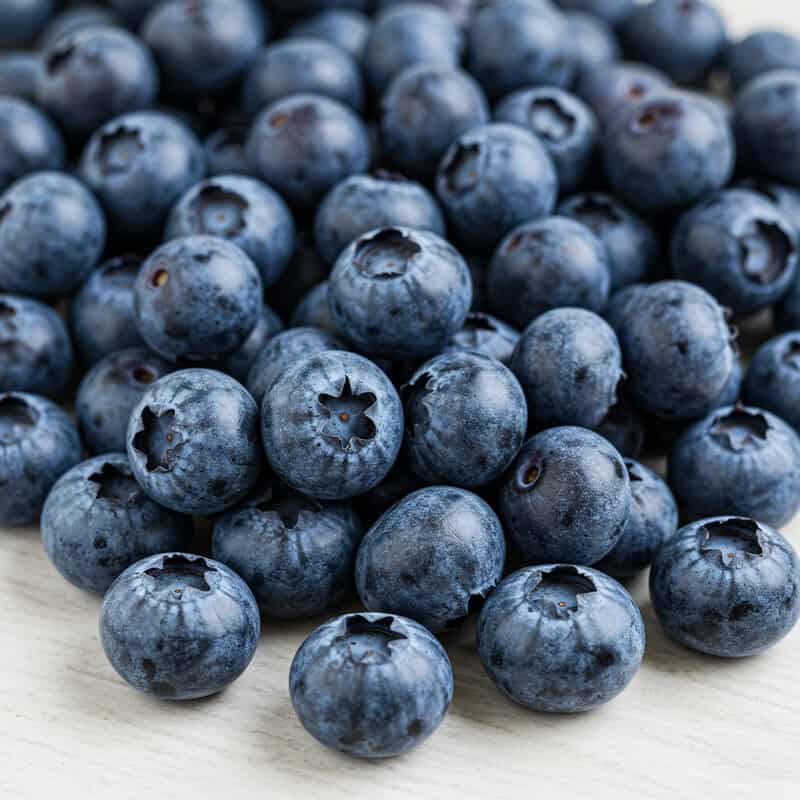
Blueberries are celebrated for their remarkable antioxidant profile, particularly their high levels of anthocyanins, which are natural compounds that combat oxidative stress in the brain. Oxidative stress, caused by an imbalance between free radicals and antioxidants, is linked to age-related cognitive decline and neurodegenerative diseases. Studies such as one published in Journal of Agricultural and Food Chemistry (2022) suggest that regular blueberry consumption may enhance memory and delay short-term cognitive decline.
When compared to other berries like strawberries or raspberries, blueberries tend to have a higher concentration of specific flavonoids that are especially beneficial for neural pathways involved in memory and learning. Their potent mix of nutrients makes them a standout choice for brain health among fruits.
To incorporate blueberries into your diet, try adding a handful to oatmeal, yogurt, or smoothies. They can also be used as a topping for whole-grain cereals or enjoyed as a simple snack. Fresh or frozen, blueberries maintain their nutritional value, making them a convenient and delicious way to protect your brain health on a daily basis.
2. Salmon
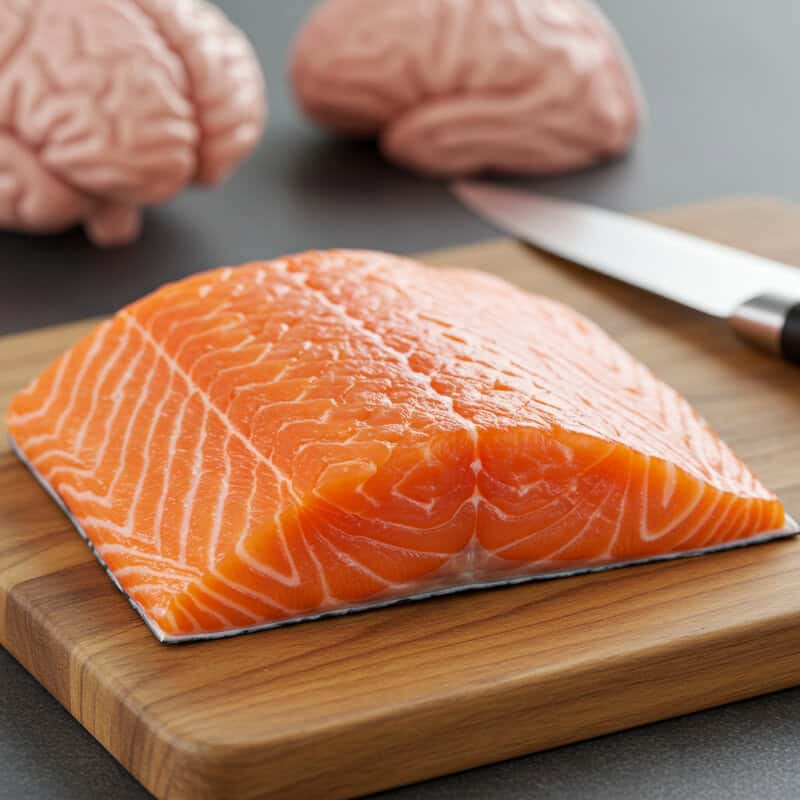
Salmon is renowned for its high content of omega-3 fatty acids, particularly docosahexaenoic acid (DHA) and eicosapentaenoic acid (EPA), both of which are integral to maintaining the structure and function of brain cells. Omega-3s are essential for neuronal membrane fluidity, synaptic plasticity, and neuroprotection, all contributing to improved cognitive function and reduced risk of neurodegenerative diseases. A recent review in Frontiers in Aging Neuroscience (2022) highlights the crucial role of omega-3s in cognitive health and their potential to slow cognitive decline.
When comparing wild salmon to farmed salmon, wild varieties generally contain higher levels of omega-3s and fewer contaminants, such as PCBs and dioxins. However, farmed salmon is still a significant source of beneficial fats, though it may have higher levels of saturated fat. Consuming a mix of both types can offer flexibility while still delivering cognitive benefits.
For optimal brain health, experts recommend eating two servings of fatty fish like salmon per week. Preparing salmon by baking, grilling, or poaching helps retain its healthy fats. Pairing salmon with antioxidant-rich vegetables and whole grains further amplifies its brain-protective effects.
3. Walnuts
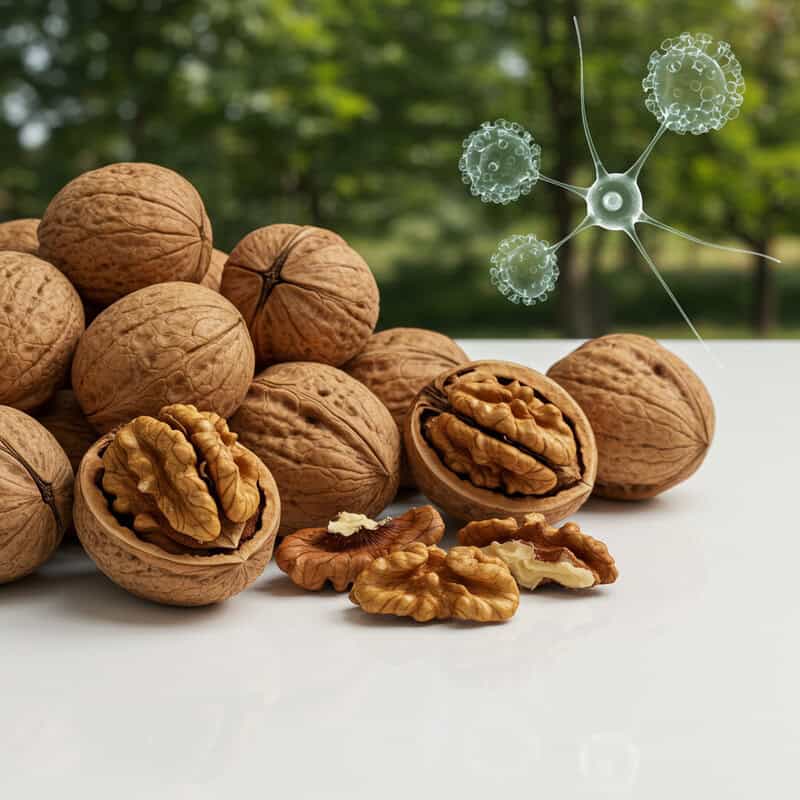
Walnuts are distinguished among nuts for their notable concentration of alpha-linolenic acid (ALA), a plant-based omega-3 fatty acid that plays a crucial role in supporting neuron health and overall brain function. ALA contributes to anti-inflammatory processes and helps maintain the integrity of cell membranes in the brain, which is essential for effective signaling between neurons. According to a study published in Nutrients (2022), regular walnut consumption is associated with improved cognitive performance and a reduced risk of cognitive decline, particularly in older adults.
Compared to other nuts, such as almonds, cashews, and peanuts, walnuts provide a significantly higher amount of ALA. While almonds and cashews offer vitamin E and magnesium, they lack the unique omega-3 profile that makes walnuts especially beneficial for brain health. This makes walnuts a standout choice for those seeking plant-based sources of essential fatty acids.
The recommended portion size is about one ounce (28 grams) daily, which is roughly a small handful. Walnuts can be enjoyed as a snack on their own, mixed into oatmeal or yogurt, sprinkled on salads, or blended into smoothies for a nutritional brain boost.
4. Broccoli
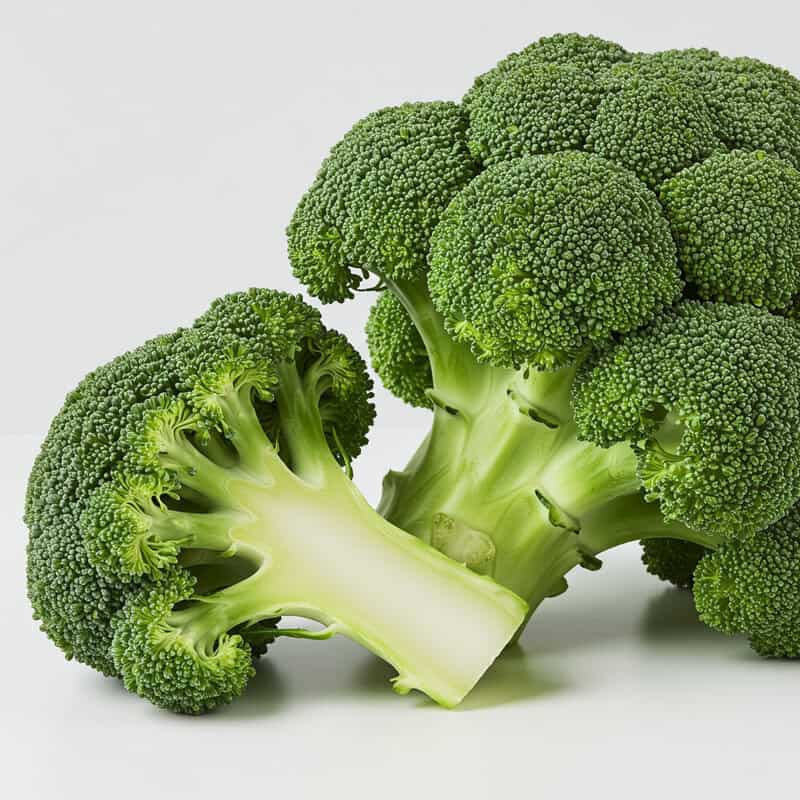
Broccoli is a nutritional powerhouse for brain health, thanks to its high content of sulforaphane and vitamin K. Sulforaphane is a bioactive compound known for its potent antioxidant and anti-inflammatory properties, which help protect the brain from oxidative stress and inflammation—two factors linked to cognitive decline. Vitamin K, meanwhile, is essential for the formation of sphingolipids, a type of fat found in high concentrations within brain cell membranes, aiding in optimal cognitive function. A 2023 review in the journal Antioxidants points to broccoli’s role in enhancing neuronal health and protecting against age-related memory loss.
Among cruciferous vegetables, such as cauliflower, Brussels sprouts, and kale, broccoli stands out for its especially high levels of sulforaphane. While all cruciferous vegetables offer important phytonutrients, broccoli delivers a particularly potent dose, making it a top choice for cognitive support.
Broccoli can be easily incorporated into the diet by steaming, roasting, or lightly sautéing to preserve its nutrients. It’s delicious tossed with olive oil and garlic, added to stir-fries, or blended into soups. For a quick snack, try raw broccoli florets dipped in hummus or Greek yogurt-based dressings.
5. Pumpkin Seeds
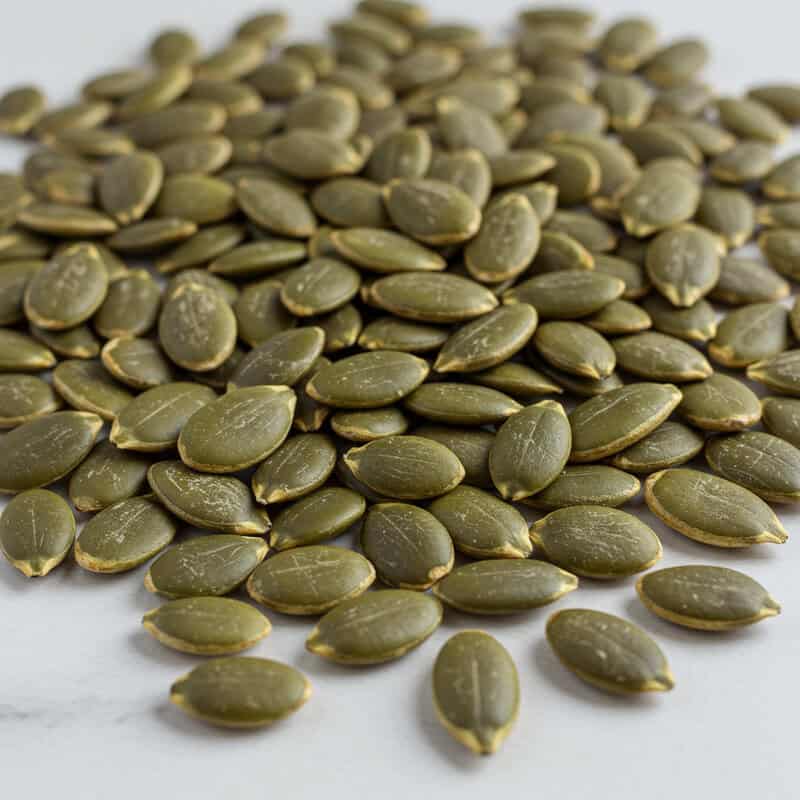
Pumpkin seeds, also known as pepitas, are a rich source of minerals crucial for brain health, particularly zinc and magnesium. Zinc is vital for nerve signaling and the proper function of neurotransmitters, while magnesium plays a key role in supporting synaptic plasticity and memory formation. Inadequate levels of these minerals have been linked to neurological disorders and increased risk of cognitive decline. A 2022 study in Nutrients highlighted the neuroprotective benefits of dietary magnesium and zinc, emphasizing their roles in supporting cognition and mental clarity.
Compared to other seeds like sunflower, chia, or flax seeds, pumpkin seeds offer one of the highest concentrations of zinc per serving. While sunflower seeds are rich in vitamin E and chia seeds in omega-3 fatty acids, pumpkin seeds are particularly valuable for their unique mineral profile supporting nerve health.
Pumpkin seeds are highly versatile in the kitchen. Sprinkle them over salads, yogurt, or oatmeal for a nutritious crunch, blend them into smoothies, or add to homemade granola bars. Roasted pumpkin seeds with a touch of sea salt or spices make an easy, brain-boosting snack that’s both portable and satisfying.
6. Dark Chocolate

Dark chocolate is packed with flavonoids, natural compounds known for their antioxidant and anti-inflammatory effects that can significantly enhance blood flow to the brain. Improved cerebral blood flow supports mental performance, memory, and cognitive processing speed. Research published in Frontiers in Nutrition (2023) found that acute and long-term consumption of cocoa flavonoids is linked to increased brain connectivity and better cognitive function in adults.
When choosing dark chocolate, cocoa concentration matters. Chocolate with 70% or higher cocoa content contains more flavonoids and less sugar compared to milk or lower-percentage chocolates. This makes high-cocoa dark chocolate a superior choice for brain benefits. In contrast, milk chocolate has far fewer flavonoids and often more added sugars, which can undermine health goals.
Moderation is key—experts recommend a daily portion of about one ounce (28 grams) to enjoy the benefits without excess calories or sugar. Always read labels to check for minimal added sugars and unhealthy fats. Opt for dark chocolate with few additives and a short ingredient list to maximize the cognitive and vascular benefits of this delicious treat.
7. Eggs

Eggs are an excellent source of choline, an essential nutrient that plays a pivotal role in the production of acetylcholine, a neurotransmitter crucial for memory, mood, and cognitive regulation. Adequate choline intake supports brain development and function throughout life, with deficiency linked to impaired memory and neurological disorders. According to the National Institutes of Health (2022), eggs are among the richest dietary sources of choline, with one large egg providing roughly 27% of the recommended daily intake for adults.
Compared to plant-based sources such as soybeans, quinoa, and broccoli, eggs deliver a much higher concentration of choline per serving. While certain plant foods contribute to choline intake, vegetarians and vegans often need to consume larger quantities or consider fortified foods to meet recommended levels, making eggs particularly valuable for those who include animal products in their diet.
Eggs are a versatile breakfast staple. Enjoy them boiled, poached, scrambled, or as part of an omelet loaded with vegetables for an added nutrient boost. For a quick meal, try avocado toast topped with a soft-cooked egg, or prepare egg muffins with spinach and tomatoes for a portable, brain-healthy option.
8. Spinach
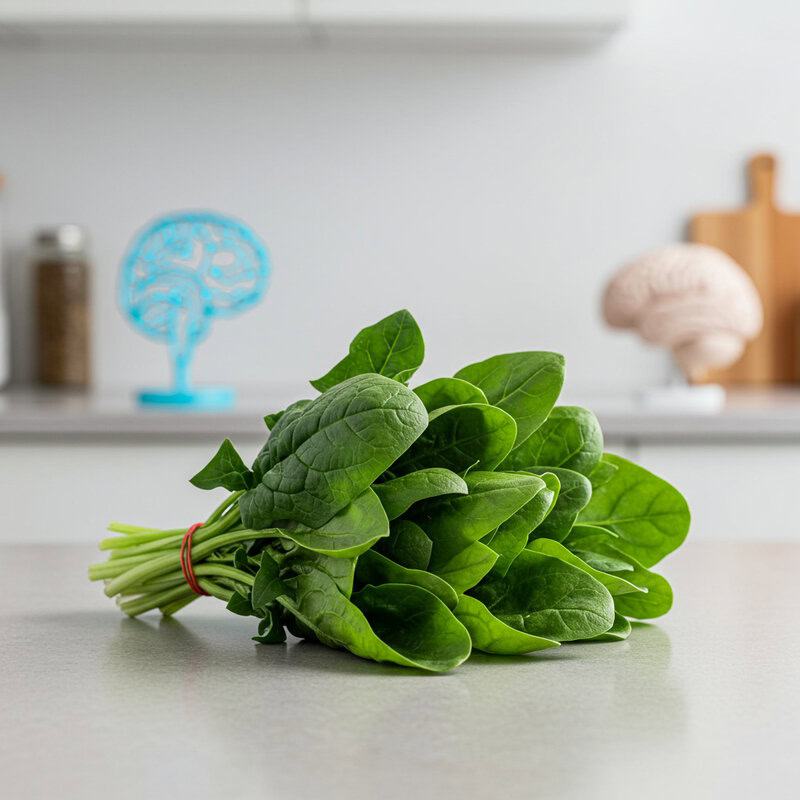
Spinach is rich in lutein and folate, two nutrients recognized for their protective effects against cognitive decline. Lutein, a carotenoid, accumulates in the brain and helps neutralize oxidative stress, promoting neural health and sharp thinking. Folate, a B vitamin, is essential for DNA synthesis and repair, and its deficiency has been associated with memory loss and increased risk of dementia. A 2022 study in the journal Nutrients found that higher intake of leafy greens, especially spinach, correlates with slower rates of cognitive decline in older adults.
While other leafy greens like kale, Swiss chard, and collard greens also provide lutein and folate, spinach offers one of the highest concentrations per serving. Spinach’s mild flavor and tender texture make it exceptionally easy to incorporate into a variety of dishes.
To enjoy spinach’s brain-boosting benefits, add fresh leaves to smoothies, blend into pesto, or toss into salads. Sautéed spinach with garlic makes a quick side, and it’s a great addition to omelets, frittatas, or soups. For convenience, keep pre-washed baby spinach on hand for effortless inclusion in wraps, grain bowls, or pasta dishes.
9. Avocado
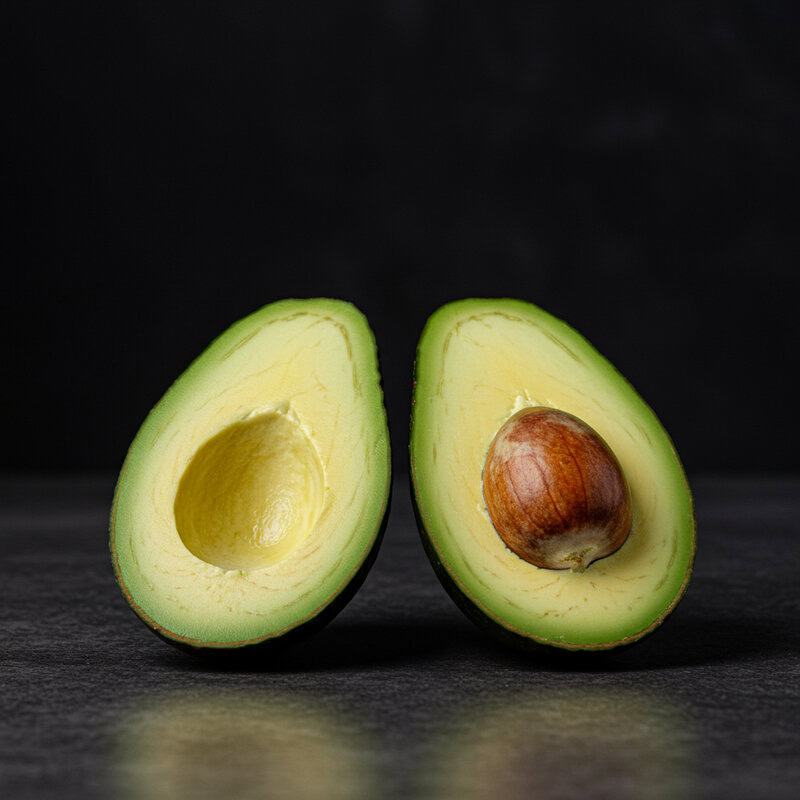
Avocados are a rich source of monounsaturated fats, which play a critical role in maintaining healthy blood flow throughout the body, including to the brain. Improved circulation delivers more oxygen and nutrients to brain cells, supporting cognitive abilities such as focus, memory, and problem-solving. According to a 2022 study in Current Atherosclerosis Reports, diets high in monounsaturated fats are linked to better cognitive performance and a lower risk of neurodegenerative diseases.
When compared to olive oil, another staple of monounsaturated fats, avocados offer additional nutrients such as fiber, potassium, and vitamins C and E. While olive oil is primarily used as a dressing or for cooking, avocados provide a creamy texture and subtle flavor, making them easy to integrate directly into meals. Both foods are foundational in heart- and brain-healthy diets like the Mediterranean diet, but avocados stand out for their versatility and nutrient diversity.
To incorporate more avocado into your diet, mash it onto whole-grain toast, blend it into smoothies for extra creaminess, or slice it into salads and grain bowls. Guacamole, avocado sushi rolls, and even chocolate-avocado mousse are delicious ways to enjoy its brain-boosting benefits.
10. Sardines
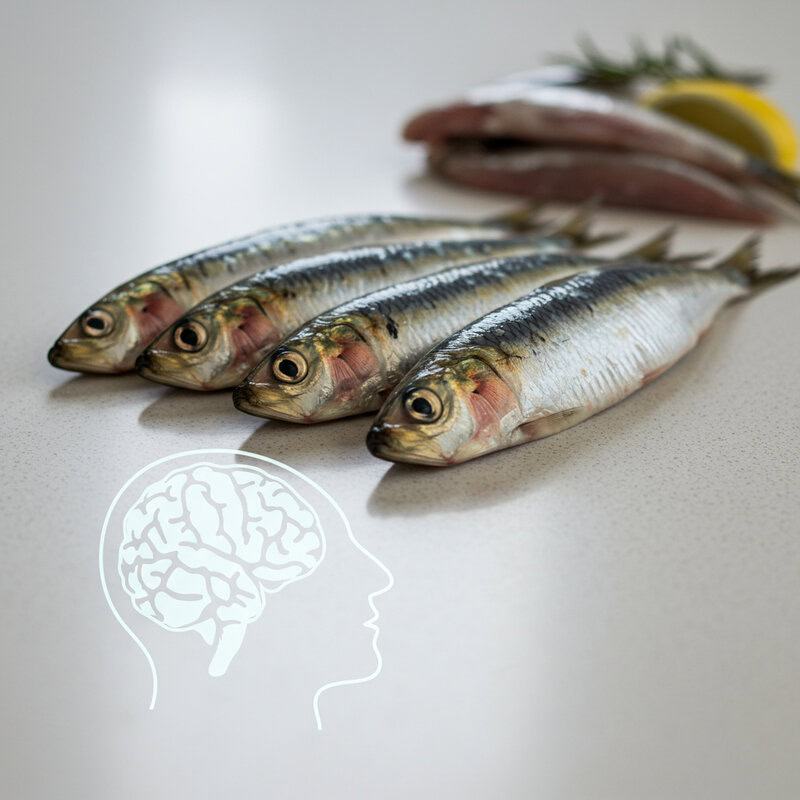
Sardines are an excellent source of the long-chain omega-3 fatty acids DHA (docosahexaenoic acid) and EPA (eicosapentaenoic acid), both of which are essential for optimal brain development and maintenance. DHA is a primary structural component of the brain, while EPA helps regulate inflammation, both contributing to improved memory, sharper focus, and reduced risk of cognitive decline. According to a 2023 review in Nutrients, consistent intake of DHA and EPA is closely linked to enhanced cognitive performance and decreased risk of neurodegenerative diseases like Alzheimer’s.
Compared to other oily fish such as mackerel and anchovies, sardines offer similar levels of omega-3s but are lower on the food chain, making them less likely to accumulate mercury and other environmental toxins. All three fish are excellent sources of brain-healthy fats, but sardines are often more accessible and affordable, with the added benefit of being typically canned with bones, providing additional calcium.
For sustainability, look for sardines certified by organizations like the Marine Stewardship Council (MSC). Enjoy sardines on whole-grain crackers, tossed into salads, or blended into spreads for a nutritious, sustainable, and convenient way to boost brain health.
11. Turmeric
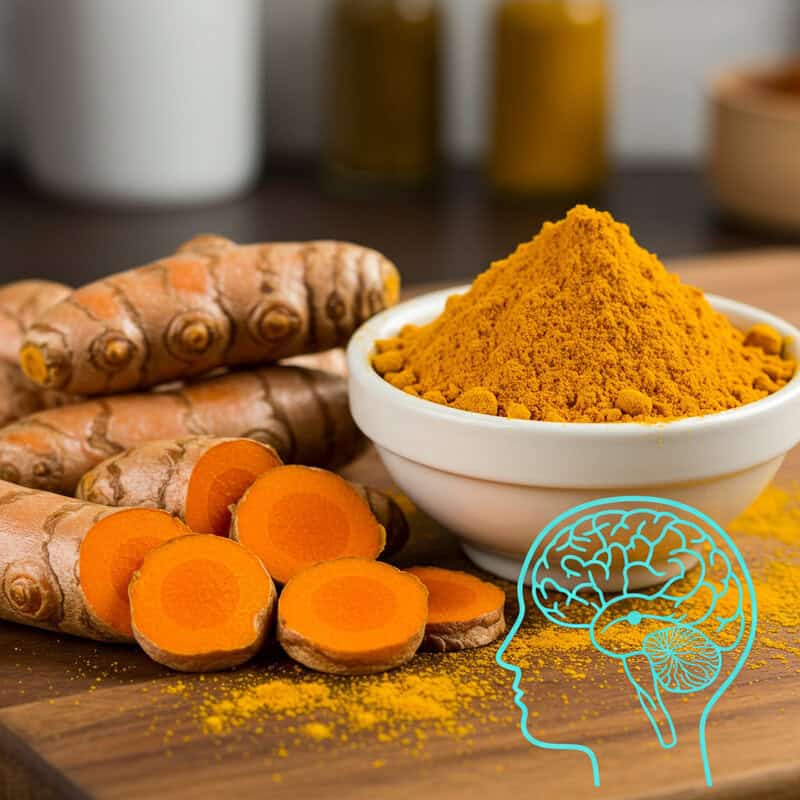
Turmeric, a vibrant yellow spice commonly used in South Asian cuisine, contains curcumin—a compound renowned for its potent anti-inflammatory and antioxidant properties. Curcumin has been shown to cross the blood-brain barrier, where it helps to counteract inflammation and oxidative stress, both of which contribute to neurodegenerative diseases and cognitive decline. Research in the Journal of Medicinal Food (2023) indicates that curcumin supplementation can improve memory and mood in both healthy older adults and those at risk for cognitive impairment.
However, curcumin’s natural bioavailability is limited, meaning it is not easily absorbed by the body. Studies have found that combining turmeric with black pepper, which contains piperine, can increase curcumin absorption by up to 2,000%. This synergy makes black pepper an essential partner for unlocking turmeric’s brain-protective effects.
Turmeric can be easily incorporated into the diet by adding it to curries, soups, and stews, or blending it into smoothies and golden milk lattes. Sprinkle turmeric and black pepper over roasted vegetables or scrambled eggs for a flavorful and healthful boost. Always pair turmeric with a small amount of black pepper for maximum benefit.
12. Tomatoes
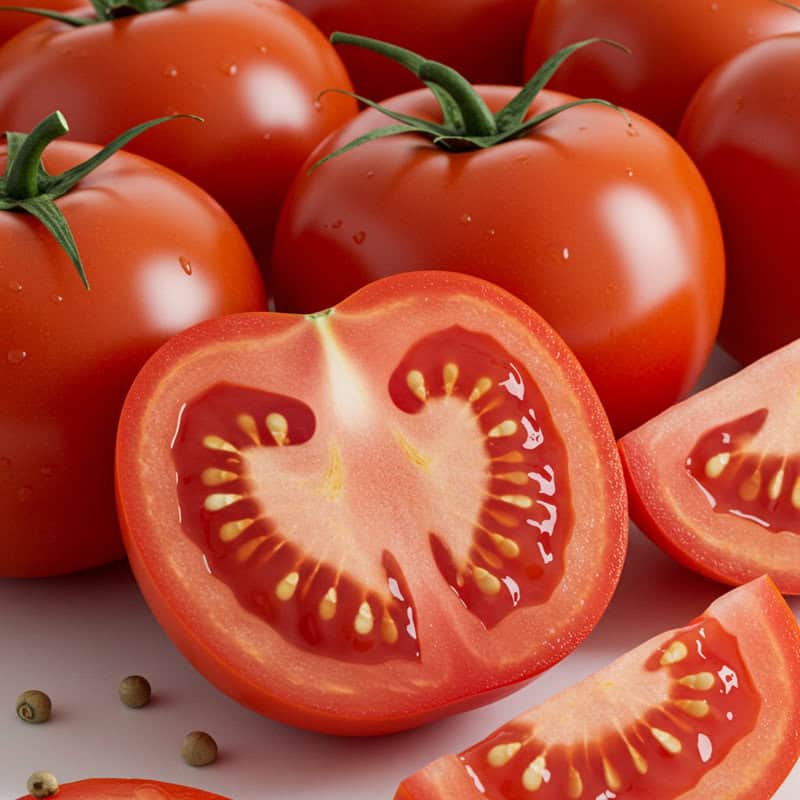
Tomatoes are a leading dietary source of lycopene, a powerful antioxidant renowned for its ability to reduce neural inflammation and protect brain cells from oxidative damage. Lycopene helps neutralize free radicals, which can cause chronic inflammation and contribute to the progression of neurodegenerative conditions, such as Alzheimer’s disease. A 2022 review in Antioxidants highlights lycopene’s neuroprotective effects, linking higher tomato consumption with a lower risk of cognitive impairment and better memory retention in older adults.
When comparing cooked versus raw tomatoes, cooked tomatoes actually offer higher levels of bioavailable lycopene. The heating process breaks down the tomato’s cell walls, making lycopene more accessible for absorption by the body. Adding a small amount of healthy fat, such as olive oil, further boosts lycopene uptake.
To incorporate tomatoes into your diet, enjoy them roasted, stewed, or as part of soups and sauces. Add sliced tomatoes to sandwiches and salads, or prepare a classic tomato bruschetta. For a concentrated dose of lycopene, try homemade or store-bought tomato paste and sauces, always opting for low-sodium and no-added-sugar varieties when possible.
13. Green Tea

Green tea is rich in catechins, particularly epigallocatechin gallate (EGCG), which have demonstrated significant neuroprotective effects. Catechins act as antioxidants, reducing oxidative stress and inflammation in the brain, thereby supporting memory, learning, and mood regulation. Research published in Molecules (2023) notes that regular green tea consumption is associated with a lower risk of cognitive impairment and may help protect against age-related neurodegenerative diseases.
When compared to coffee, green tea contains less caffeine—typically about 25-35 mg per cup, versus 90-120 mg in a standard cup of coffee. This makes green tea a gentler option for those sensitive to caffeine, providing a milder energy boost without the jitters. Additionally, green tea contains L-theanine, an amino acid that promotes relaxation and may counterbalance the stimulating effects of caffeine for a calm, focused mental state.
To maximize the benefits of green tea, brew it with water just below boiling (around 175°F or 80°C) for 2-3 minutes. Over-steeping can result in bitterness and reduced nutrient content. Enjoy green tea plain, or with a slice of lemon for added flavor and an extra antioxidant kick.
14. Oranges
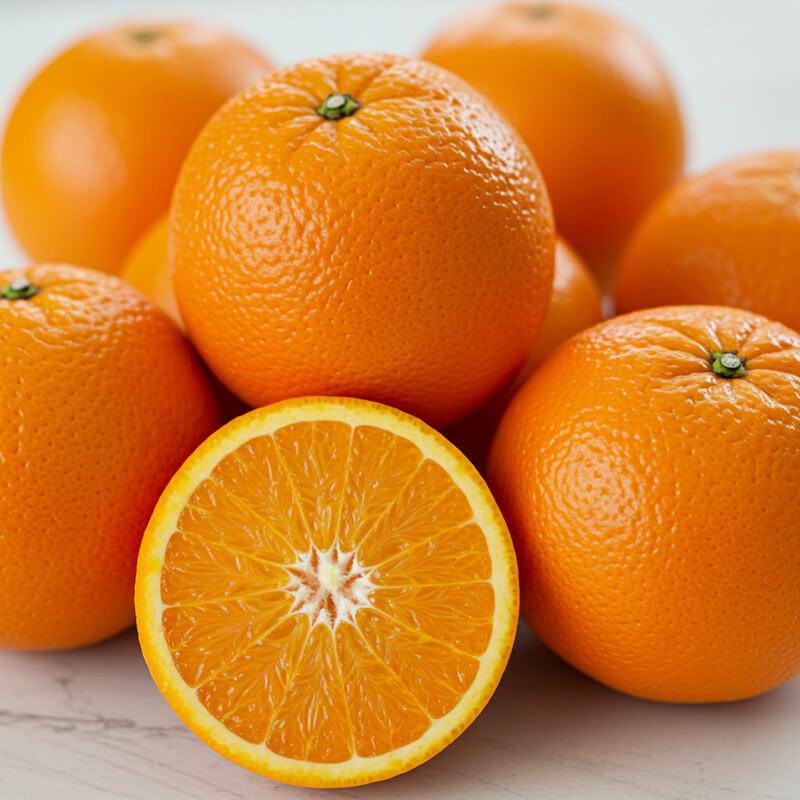
Oranges are renowned for their high vitamin C content, a crucial antioxidant that plays a significant role in protecting the brain against oxidative stress and cellular damage. Vitamin C helps neutralize free radicals, supports the production of neurotransmitters, and is essential for overall brain health. A 2022 review in Antioxidants found that individuals with higher vitamin C intake showed a reduced risk of cognitive decline and better memory performance as they aged.
When compared to other citrus fruits like grapefruits, lemons, and limes, oranges stand out for their higher vitamin C concentration per serving. While all citrus fruits contribute antioxidants and hydration, oranges provide a particularly potent dose, making them especially effective in supporting brain health and reducing the risk of neurodegenerative conditions.
For easy snacking, keep oranges or mandarin segments on hand for a quick, refreshing bite. Add orange slices to salads, yogurt, or oatmeal for a burst of flavor and nutrition. Freshly squeezed orange juice (without added sugar) is another excellent way to enjoy their benefits, as is blending oranges into smoothies for a brain-boosting start to your day.
15. Oats
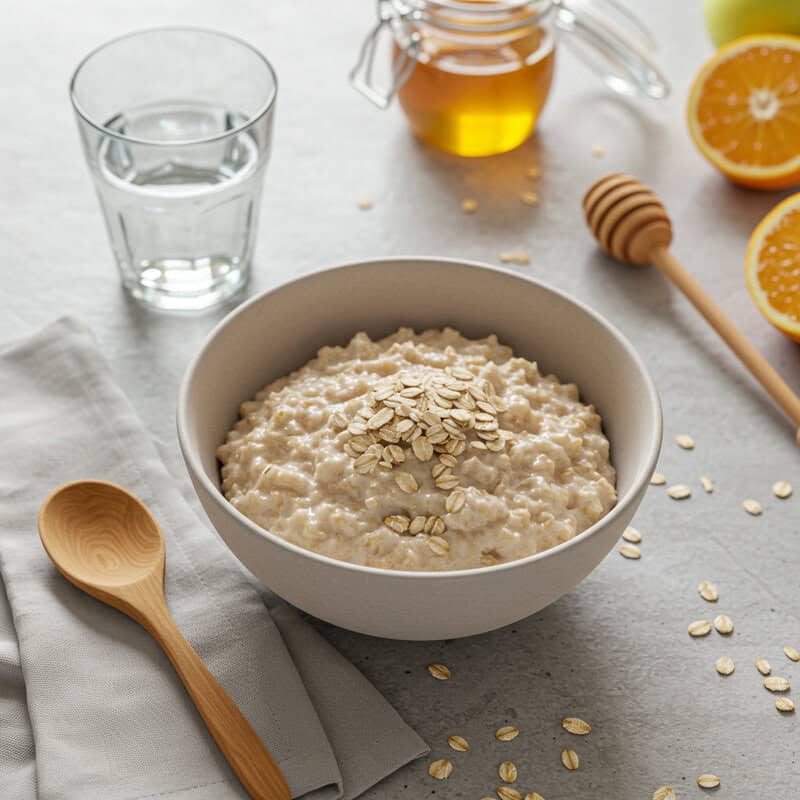
Oats are a highly beneficial whole grain, providing a steady and sustained release of glucose, which is the primary energy source for brain cells. This slow, consistent energy supply helps maintain focus, concentration, and cognitive performance throughout the day. A 2022 study in Nutrients highlights the importance of whole grains like oats in supporting cognitive function and reducing the risk of cognitive decline by stabilizing blood sugar levels and providing essential nutrients such as vitamin B6 and magnesium.
Compared to other whole grains such as quinoa and barley, oats are particularly rich in soluble fiber, especially beta-glucan, which not only supports heart health but also aids in keeping blood glucose levels balanced. While quinoa offers more protein and barley provides unique antioxidants, oats remain a breakfast staple due to their versatility and gentle effect on blood sugar.
For a brain-healthy breakfast, prepare classic oatmeal topped with berries, nuts, and seeds. Overnight oats are a convenient make-ahead option, while oat-based pancakes or muffins can add variety. Swapping processed cereals for steel-cut or old-fashioned oats ensures a nourishing start to the day that fuels both body and mind.
16. Black Beans
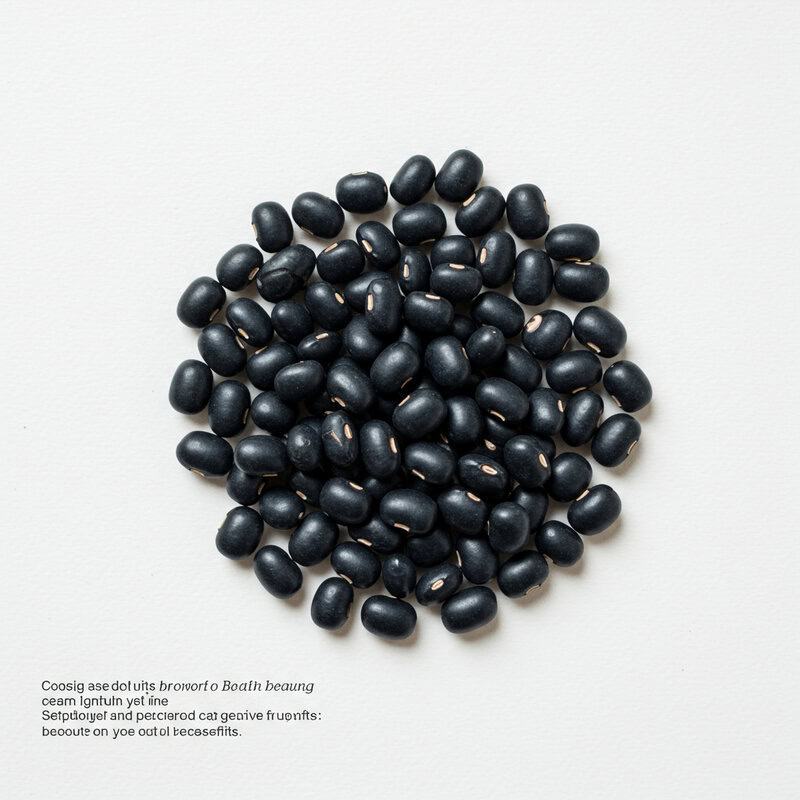
Black beans are an excellent source of dietary fiber and magnesium, both of which play a key role in supporting mood and cognitive focus. Fiber helps regulate blood sugar levels, preventing spikes and crashes that can affect concentration and mental clarity. Magnesium is essential for nerve transmission and the synthesis of neurotransmitters involved in mood regulation, such as serotonin and dopamine. A 2022 study in Nutrients suggests that diets rich in both fiber and magnesium are associated with a lower risk of depression and improved attention span.
When compared to lentils, black beans offer a comparable amount of fiber and magnesium, though lentils may have slightly higher protein content. Both legumes are highly nutritious and support brain health, but black beans stand out for their antioxidant content, which further protects against inflammation and oxidative stress in neural tissue.
To incorporate black beans into your meals, try adding them to salads, soups, or chili for an easy nutritional boost. Black bean tacos or burrito bowls make satisfying lunches, while black bean dip with whole-grain crackers offers a brain-healthy snack. For a creative twist, use black beans in brownies or smoothies to add fiber and minerals without altering the flavor.
17. Greek Yogurt
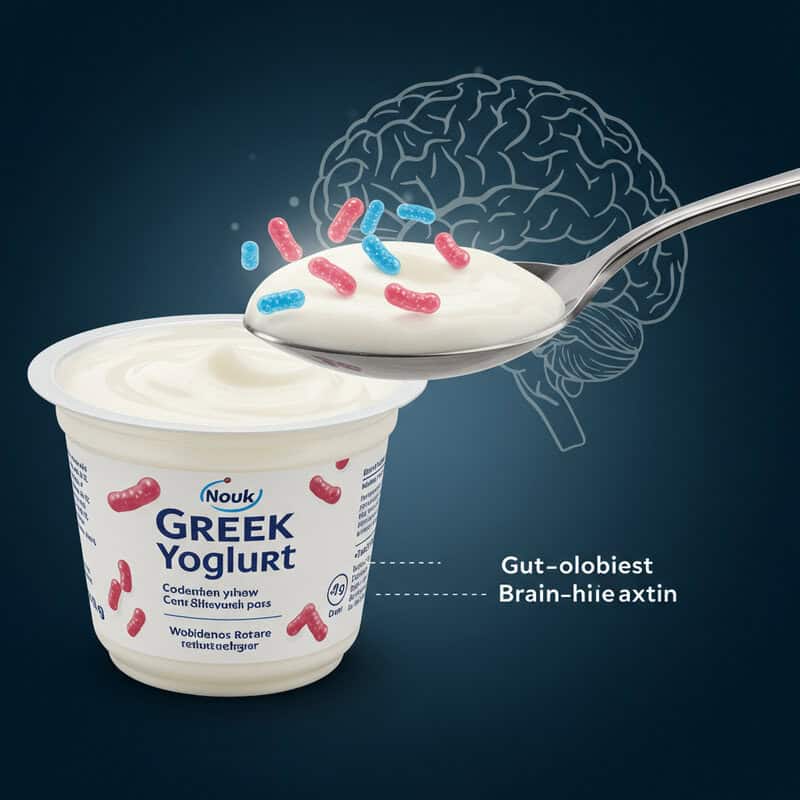
Greek yogurt stands out for its high concentration of probiotics—beneficial bacteria that play a vital role in the gut-brain axis, the complex communication network linking gut health to brain function. Probiotics can influence neurotransmitter production, reduce inflammation, and support emotional balance and cognitive performance. According to a 2022 review in Nutrients, regular consumption of probiotic-rich foods like Greek yogurt is associated with reduced anxiety, improved mood, and sharper memory due to the modulation of the gut microbiome.
Compared to regular yogurt, Greek yogurt is strained to remove excess whey, resulting in a thicker texture, higher protein content, and often more concentrated probiotics. Although both types offer health benefits, Greek yogurt provides more satiety and a richer nutrient profile, supporting stable blood sugar and sustained mental energy throughout the day.
When choosing Greek yogurt, opt for varieties labeled “live and active cultures” to ensure probiotic content. Select plain, unsweetened options to avoid added sugars, and enhance flavor naturally with fresh fruit, nuts, or a drizzle of honey. Greek yogurt can be used in parfaits, smoothies, or as a creamy base for dips, dressings, and desserts.
18. Sunflower Seeds
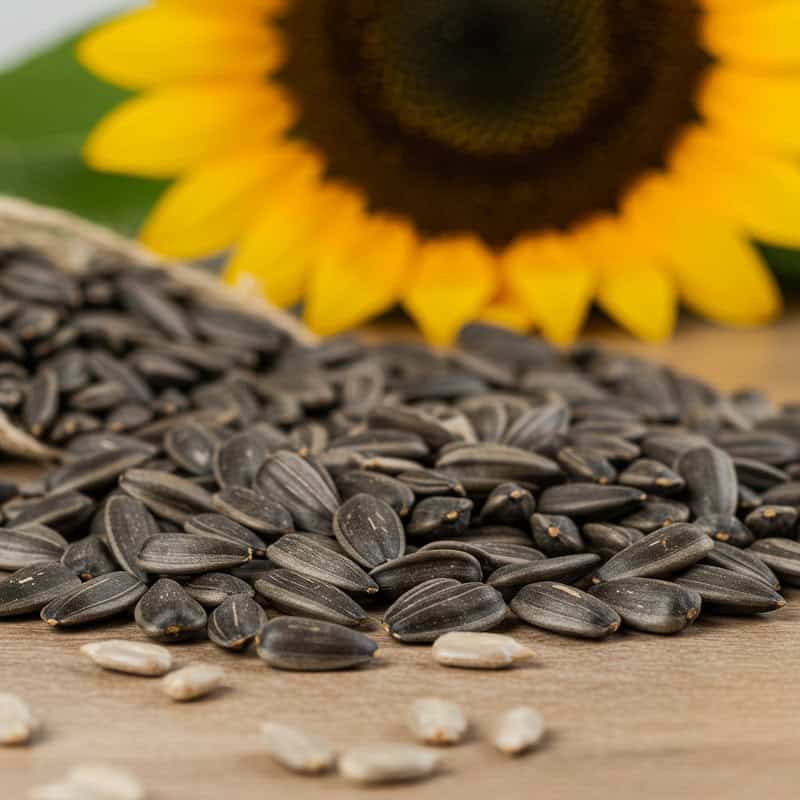
Sunflower seeds are a potent source of vitamin E, a fat-soluble antioxidant with well-documented neuroprotective effects. Vitamin E helps shield brain cells from oxidative stress and age-related damage, preserving cognitive function and reducing the risk of neurodegenerative diseases like Alzheimer’s. A 2022 review in Antioxidants underscores the link between higher vitamin E intake and slower cognitive decline, highlighting the importance of incorporating this nutrient into the diet for lifelong brain health.
When compared to other vitamin E-rich foods such as almonds and hazelnuts, sunflower seeds actually provide one of the highest concentrations per serving. While almonds and hazelnuts also contribute healthy fats and minerals, sunflower seeds are a more affordable and versatile option for boosting vitamin E intake, making them a practical choice for daily snacking.
The recommended portion size is about 1 ounce (28 grams), or roughly a small handful. Enjoy sunflower seeds on their own, sprinkled over salads, oatmeal, or yogurt, or blended into seed butters and homemade granola bars. Choose unsalted, raw, or dry-roasted varieties to maximize health benefits and avoid excess sodium.
19. Coffee

Coffee is celebrated not only for its stimulating caffeine content but also for its rich supply of antioxidants, both of which have been linked to reduced risk of Alzheimer’s disease and age-related cognitive decline. Caffeine enhances alertness, concentration, and short-term memory by blocking adenosine receptors, while antioxidants help combat oxidative stress and inflammation in the brain. According to a 2022 study in Nutrients, regular coffee consumption is associated with a lower risk of developing neurodegenerative diseases, including Alzheimer’s and Parkinson’s.
When compared to tea, coffee typically contains higher levels of caffeine (about 90-120 mg per cup versus 25-35 mg in green tea) and a different profile of polyphenols. Both beverages offer cognitive benefits, though tea provides a gentler energy boost and additional amino acids like L-theanine, which promote calm and focus. Coffee’s robust antioxidant content and greater caffeine concentration make it particularly effective for enhancing alertness and memory.
For mindful consumption, limit intake to 3-4 cups per day to maximize benefits without experiencing jitters or disrupted sleep. Opt for black coffee or use minimal added sugar and cream. Consider timing your coffee away from bedtime and balancing it with water and nutritious foods for overall well-being.
20. Brussels Sprouts
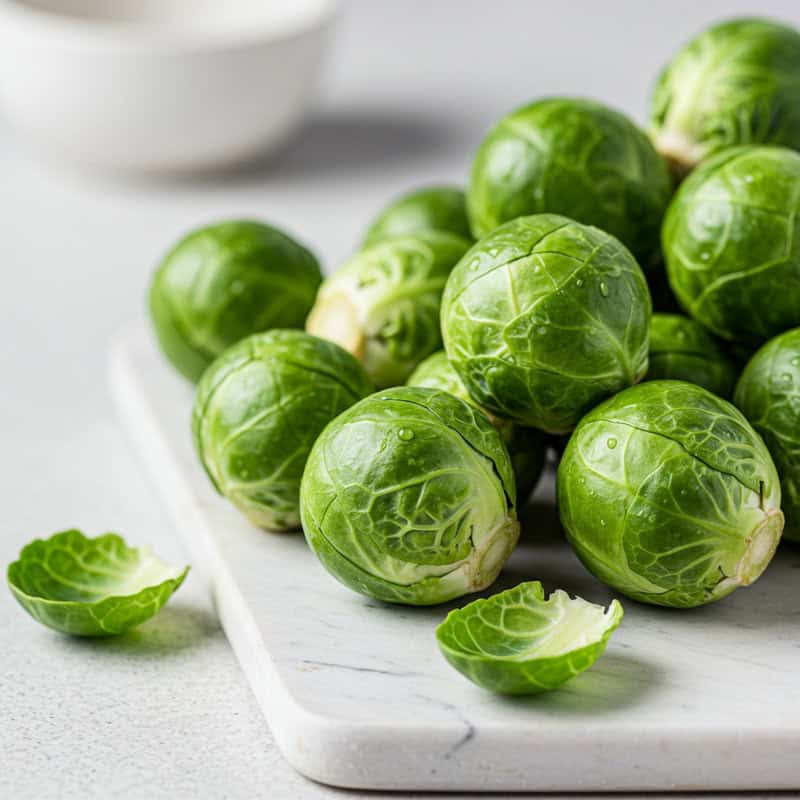
Brussels sprouts are a standout member of the cruciferous vegetable family, valued for their high content of glucosinolates and vitamin K—both essential for supporting brain cell integrity and cognitive health. Glucosinolates are sulfur-containing compounds that, when broken down in the body, help reduce inflammation and protect neural tissue from oxidative damage. Vitamin K, abundant in Brussels sprouts, plays a vital role in maintaining healthy brain cell membranes and supporting the production of sphingolipids, important fats for brain structure. According to a 2023 review in Frontiers in Aging Neuroscience, a diet rich in cruciferous vegetables like Brussels sprouts may help preserve cognitive function as we age.
When compared to cabbage, Brussels sprouts offer a more concentrated source of glucosinolates and vitamin K per serving, although both vegetables contribute valuable phytonutrients. The compact size and density of Brussels sprouts make them particularly nutrient-dense choices for brain health.
To maximize flavor and nutrient retention, try roasting Brussels sprouts. Toss halved sprouts with olive oil, salt, and pepper, then roast at 400°F (200°C) for 20-25 minutes until crispy and caramelized. Roasted Brussels sprouts pair well with balsamic glaze or toasted nuts for a delicious, brain-boosting side dish.
21. Red Grapes
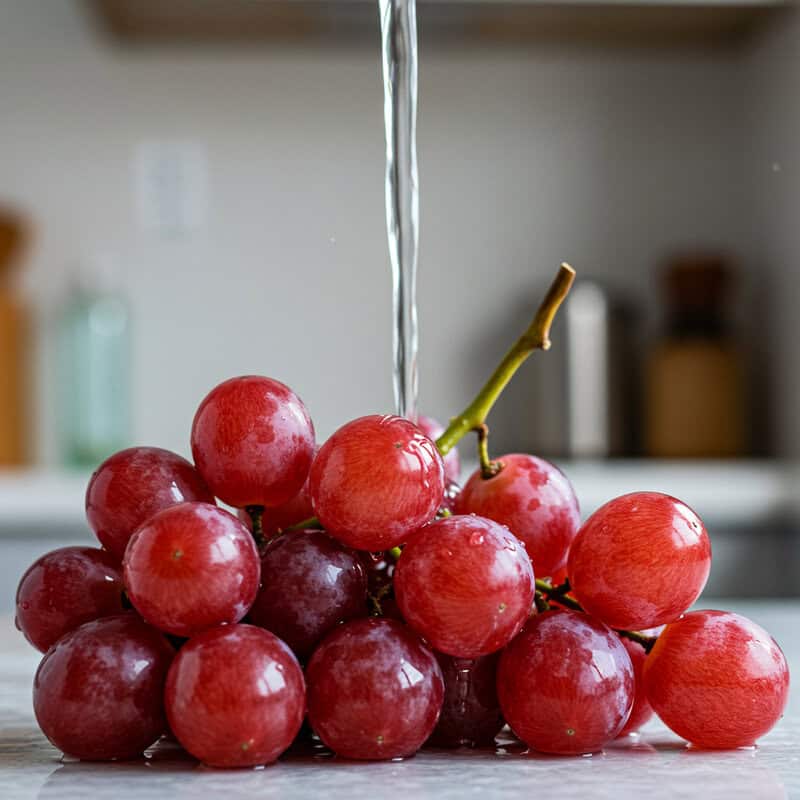
Red grapes are a rich natural source of resveratrol, a potent antioxidant that has been shown to protect brain cells from damage, reduce inflammation, and support healthy blood flow to the brain. Resveratrol is believed to activate pathways associated with longevity and cognitive resilience, helping to reduce the risk of neurodegenerative diseases such as Alzheimer’s. A 2022 review in Antioxidants points to the neuroprotective effects of resveratrol, noting improved memory and cognitive performance with regular intake of resveratrol-rich foods like red grapes.
Compared to purple grape juice, whole red grapes provide the added benefits of dietary fiber and less concentrated sugars. While purple grape juice also contains resveratrol and other polyphenols, it is often higher in sugar and calories. Eating whole grapes ensures a slower release of glucose and greater satiety, making it a healthier option for sustained brain health.
Red grapes make for an easy, portable snack on their own, or can be frozen for a cool treat. Add halved grapes to salads, cheese boards, or yogurt parfaits. For a creative twist, try roasting grapes with olive oil and herbs, or blending them into smoothies for a burst of antioxidants.
22. Beets
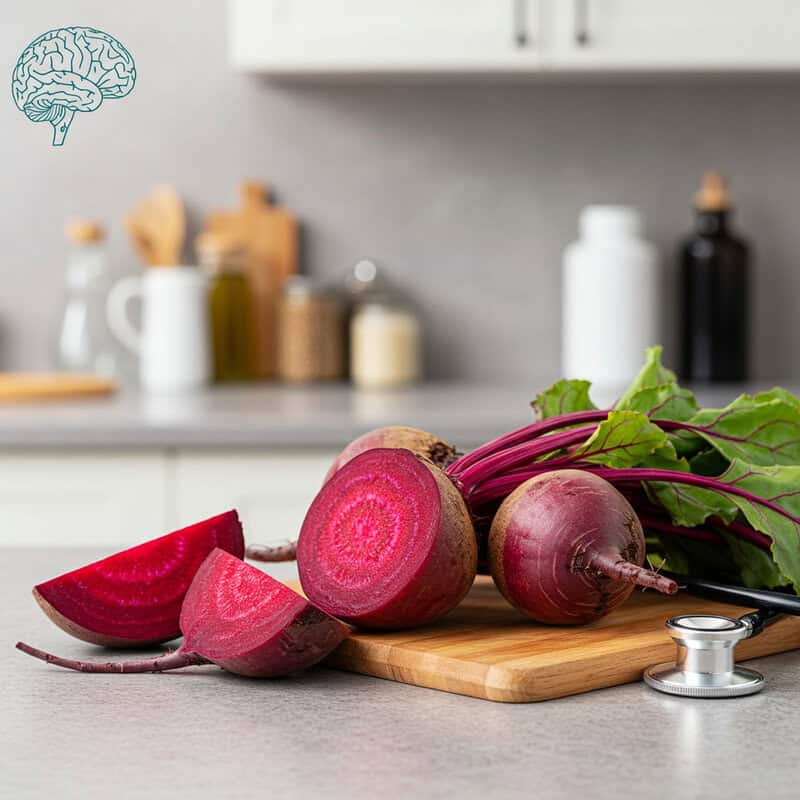
Beets are celebrated for their high natural nitrate content, which the body converts into nitric oxide—a molecule that helps relax and dilate blood vessels, thereby improving blood flow to the brain. Enhanced cerebral circulation supports better oxygen and nutrient delivery, which can boost cognitive function, mental clarity, and even athletic performance. A 2022 review in Nutrients underscores the positive impact of dietary nitrates from beets on brain perfusion, particularly in older adults at risk for cognitive decline.
While leafy greens such as spinach and arugula are also excellent sources of dietary nitrates, beets stand out for their higher concentration per serving and their unique combination of antioxidants, including betalains, which further protect neural tissue from oxidative stress. This makes beets a valuable addition to a brain-healthy diet, complementing the benefits of other nitrate-rich vegetables.
Beets can be enjoyed roasted, which brings out their natural sweetness and enhances their earthy flavor. Toss cubed beets with olive oil, salt, and pepper, then roast at 400°F (200°C) until tender. For a refreshing option, juice raw beets with apples and ginger, or add shredded beets to salads for vibrant color and a nutritional boost.
23. Lentils
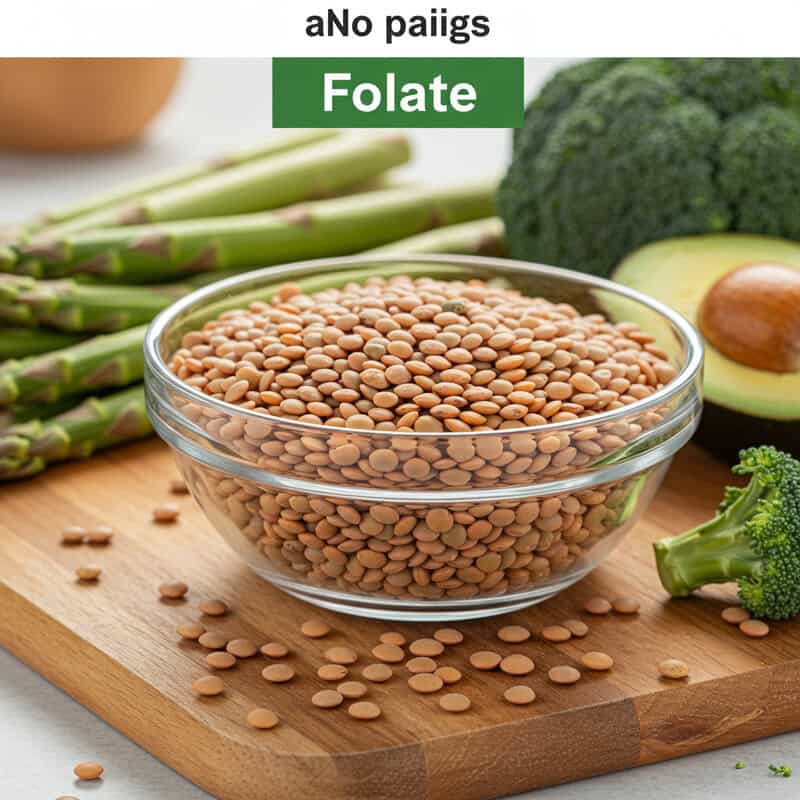
Lentils are a superb plant-based source of folate, a B-vitamin essential for neurotransmitter synthesis and overall brain health. Folate is involved in the creation of serotonin, dopamine, and norepinephrine—chemicals that regulate mood, motivation, and cognitive function. A deficiency in folate can lead to impaired memory, difficulty concentrating, and increased risk of depression and cognitive decline. According to a 2022 review in Nutrients, regular consumption of folate-rich foods like lentils is linked to better cognitive performance and reduced risk of neurodegenerative disorders.
When compared to chickpeas, lentils offer a higher folate content per serving, while chickpeas provide slightly more protein and iron. Both legumes contribute fiber, but lentils’ folate content gives them a distinct advantage for supporting neurotransmitter synthesis and mental clarity.
Lentils are a versatile ingredient for soups and stews. Try classic lentil soup with carrots, celery, and tomatoes, or a spiced red lentil dal with ginger and turmeric. For a Mediterranean twist, combine lentils with spinach, garlic, and lemon. These hearty, nourishing soups not only warm you up but also deliver a powerful brain boost with every bowl.
24. Seaweed

Seaweed is a natural marine source of iodine, a trace mineral vital for the synthesis of thyroid hormones, which regulate brain development and cognitive function throughout life. Adequate iodine intake is essential, especially during pregnancy and childhood, to support normal growth, neuronal connectivity, and intelligence. A deficiency can lead to cognitive impairment and developmental delays. According to a 2023 review in Frontiers in Nutrition, populations with sufficient iodine—often from seaweed consumption—show improved cognitive outcomes and reduced risk of intellectual disabilities.
Compared to iodized salt, seaweed offers a natural and nutrient-rich way to obtain iodine, along with additional minerals, fiber, and antioxidants. While iodized salt is an effective public health measure to prevent deficiency, seaweed provides a broader spectrum of micronutrients and is particularly valued in traditional Asian diets for its brain-supportive properties.
To add seaweed to your routine, enjoy nori-wrapped sushi rolls, sprinkle toasted seaweed flakes (such as furikake) on rice or salads, or snack on roasted seaweed sheets. Seaweed can also be stirred into soups and broths for a savory umami boost, making it both a flavorful and functional addition to brain-healthy eating.
25. Apples
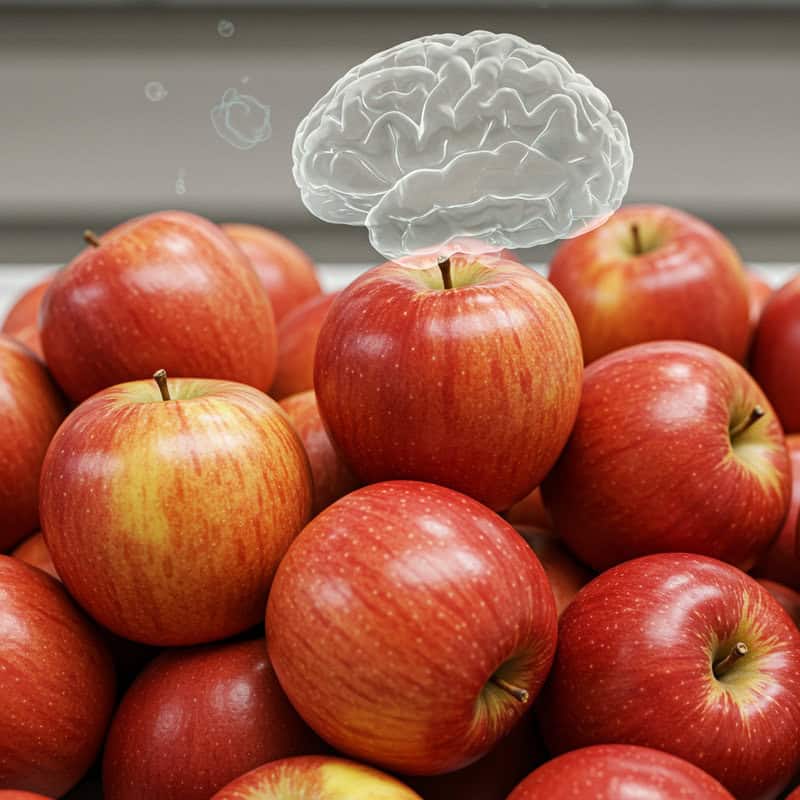
Apples are a convenient and widely enjoyed fruit that offers a powerful brain-protective antioxidant known as quercetin. Quercetin helps neutralize free radicals, reduces inflammation, and shields brain cells from oxidative stress, all of which contribute to long-term cognitive health. A 2023 review in Antioxidants highlights quercetin’s neuroprotective effects, including its potential to lower the risk of neurodegenerative diseases by enhancing cellular defenses and supporting healthy blood flow to the brain.
When compared to pears, apples tend to provide higher levels of quercetin, especially in the skin. Pears, while also rich in fiber and vitamin C, have a milder antioxidant profile. Both fruits are beneficial for overall health, but apples’ unique polyphenol content gives them a particular edge for supporting cognitive function and brain aging.
For optimal benefits, enjoy apples with the skin on, as that’s where most of the quercetin is concentrated. Apples make a simple, portable snack on their own or sliced with nut butter for added protein and healthy fats. Add chopped apples to salads, yogurt, or oatmeal, or bake them with cinnamon for a naturally sweet treat that supports brain health.
26. Brown Rice
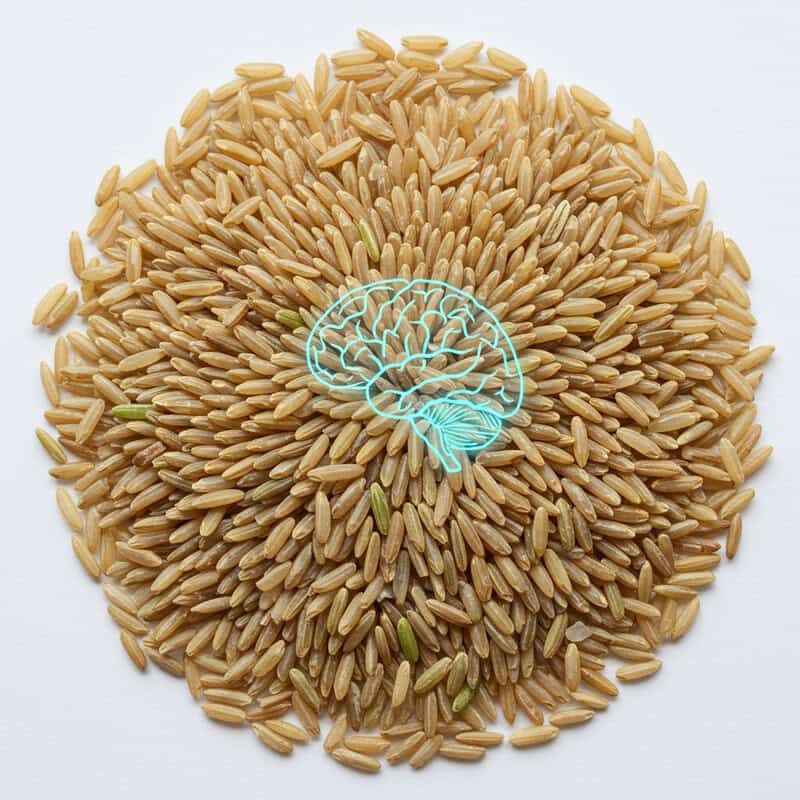
Brown rice is a whole grain rich in B vitamins, including thiamin (B1), niacin (B3), and pyridoxine (B6), all of which are essential for energy metabolism within brain cells. These vitamins help convert carbohydrates into glucose, the brain’s primary fuel, and facilitate the synthesis of neurotransmitters necessary for clear thinking, memory, and mood regulation. A 2022 review in Foods emphasizes the importance of B vitamins in supporting cognitive performance and reducing the risk of mental fatigue and age-related cognitive decline.
When compared to white rice, brown rice retains the nutrient-rich bran and germ layers, resulting in significantly higher levels of B vitamins, fiber, and minerals. White rice, by contrast, is stripped of these layers during processing, leading to a loss of essential nutrients and a quicker spike in blood sugar. Brown rice’s slow-release carbohydrates and robust nutrient profile make it a superior choice for sustained brain energy.
Incorporate brown rice into meals by serving it as a base for grain bowls, stir-fries, or curries. It pairs well with vegetables, lean proteins, and healthy fats. Try using brown rice in homemade sushi, stuffed peppers, or mixed with beans for a balanced, brain-supportive meal.
27. Kiwi
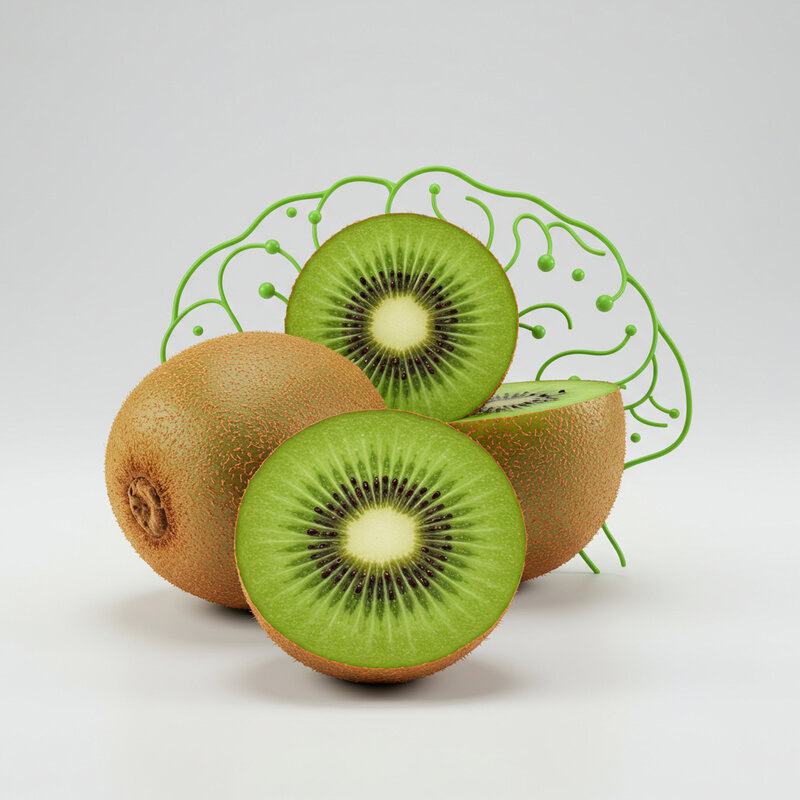
Kiwi is a vibrant fruit loaded with vitamin C and serotonin precursors, both of which play critical roles in supporting brain health and mood. Vitamin C is a powerful antioxidant that protects neurons from oxidative stress and supports the synthesis of neurotransmitters. Kiwi also contains tryptophan, an amino acid that serves as a precursor to serotonin, the “feel-good” neurotransmitter essential for emotional balance and sleep quality. According to a 2022 review in Nutrients, regular kiwi consumption has been linked to improved mood, cognitive performance, and even sleep patterns due to its unique nutrient composition.
When compared to strawberries, kiwi offers more vitamin C per serving and also provides a modest amount of serotonin precursors. While strawberries are rich in antioxidants and fiber, kiwi’s combination of vitamin C and tryptophan makes it particularly effective for supporting both brain function and emotional well-being.
Kiwi is a convenient and delicious snack on its own—simply peel and slice, or cut in half and scoop with a spoon. Add kiwi slices to yogurt, salads, or smoothies for a tangy boost. Kiwi also pairs well with other fruits in a mixed fruit salad, offering a refreshing and brain-supportive treat.
28. Cauliflower
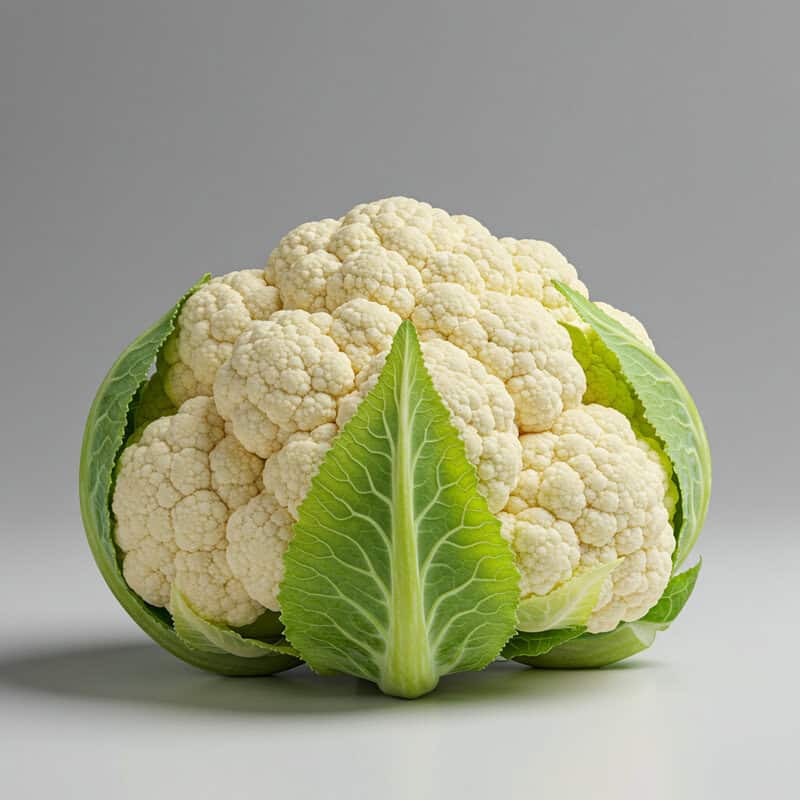
Cauliflower is a versatile cruciferous vegetable that supports brain health through its content of choline and glucosinolates. Choline is essential for the synthesis of acetylcholine, a neurotransmitter involved in memory, learning, and mood regulation. Glucosinolates, on the other hand, are sulfur-containing compounds that help protect brain cells from oxidative stress and inflammation, further supporting cognitive function. According to a 2022 review in Frontiers in Nutrition, diets rich in choline and glucosinolates are associated with improved memory retention and reduced risk of neurodegenerative diseases.
When compared to broccoli, cauliflower contains slightly less vitamin K but offers a comparable amount of choline and glucosinolates, making both vegetables excellent choices for cognitive support. Cauliflower’s mild flavor and unique texture also make it a favorite for those seeking a lower-carb or grain-free alternative in their meals.
To incorporate cauliflower into your diet, try roasting florets with olive oil and spices, steaming and mashing as a substitute for potatoes, or blending into soups for a creamy texture. Cauliflower rice and cauliflower pizza crusts are popular, creative ways to enjoy this brain-friendly vegetable while supporting memory and overall cognitive health.
29. Edamame
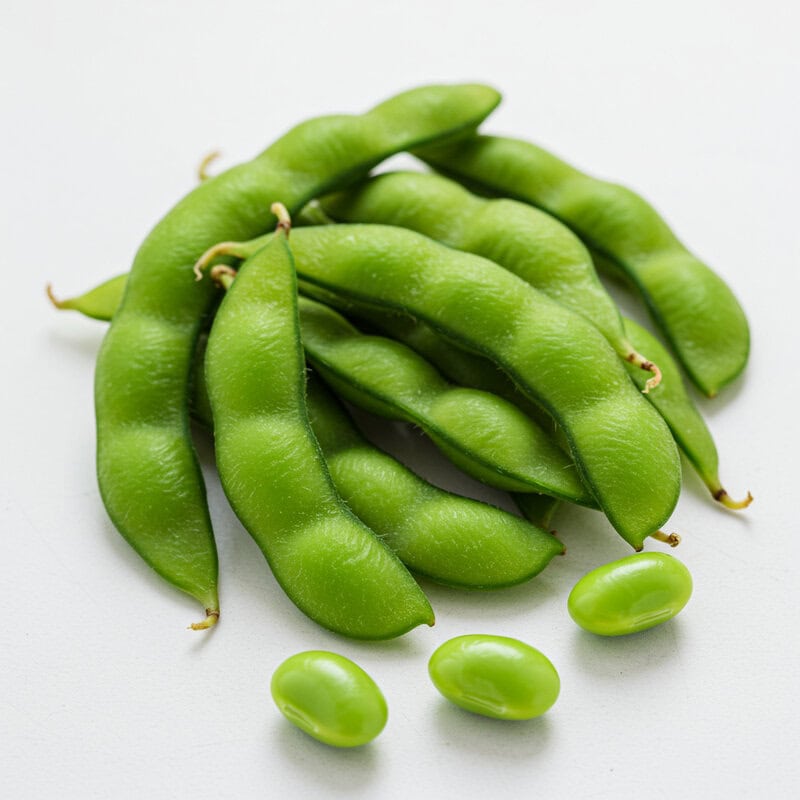
Edamame, or young soybeans, is an excellent plant-based source of both protein and folate, nutrients vital for optimal cognitive function. Protein supports the repair and maintenance of brain cells, while folate is crucial for the synthesis of neurotransmitters involved in mood, memory, and learning. According to a 2021 review in Nutrients, diets rich in folate and plant-based proteins are associated with better mental performance and a lower risk of cognitive decline, especially among older adults and vegetarians.
When compared to green peas, edamame provides a higher amount of complete protein and more folate per serving. While peas are also a good source of fiber and micronutrients, edamame’s unique amino acid profile and folate content make it particularly valuable for supporting brain health and providing sustained energy for mental tasks.
Edamame is a versatile and easy snack—simply steam or boil the pods and sprinkle with a pinch of sea salt. Shelled edamame can be tossed into salads, grain bowls, or stir-fries for an added protein boost. For a creative twist, try blending edamame into hummus or mashing with avocado for a nutrient-dense dip that supports cognitive well-being.
30. Pomegranate
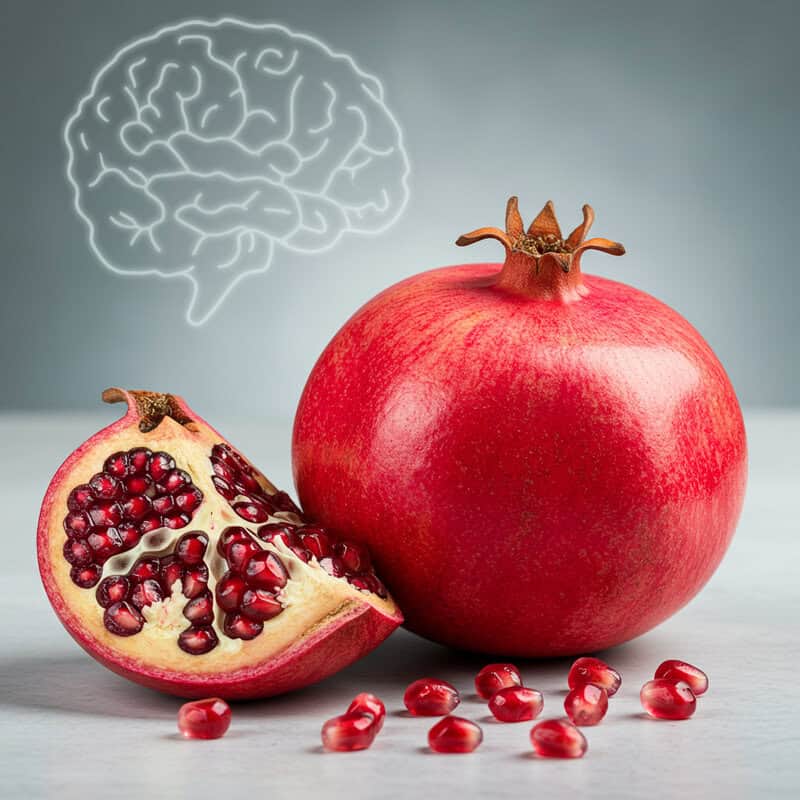
Pomegranate is celebrated for its high concentration of polyphenols, powerful antioxidants that offer robust neuroprotective effects. Polyphenols help reduce oxidative stress, combat inflammation, and support healthy blood flow to the brain, all of which are essential for preserving cognitive function and reducing the risk of neurodegenerative diseases. A 2022 review in Nutrients highlights the cognitive benefits of pomegranate polyphenols, noting improvements in memory and executive function, particularly in older adults and those at risk for memory decline.
When compared to berries such as blueberries and raspberries, pomegranate seeds (arils) provide a similar antioxidant punch but with a unique profile of ellagitannins and anthocyanins. While berries are excellent for brain health, pomegranate stands out for its diverse range of polyphenols and its potential to improve both verbal and visual memory.
Pomegranate can be enjoyed by adding fresh seeds to salads, yogurt, or oatmeal for a sweet-tart burst of flavor. Pomegranate juice is another convenient option—choose 100% pure juice with no added sugars to maximize the brain benefits. Sprinkle seeds over roasted vegetables or grain bowls for a colorful, brain-boosting addition to any meal.
31. Flaxseed
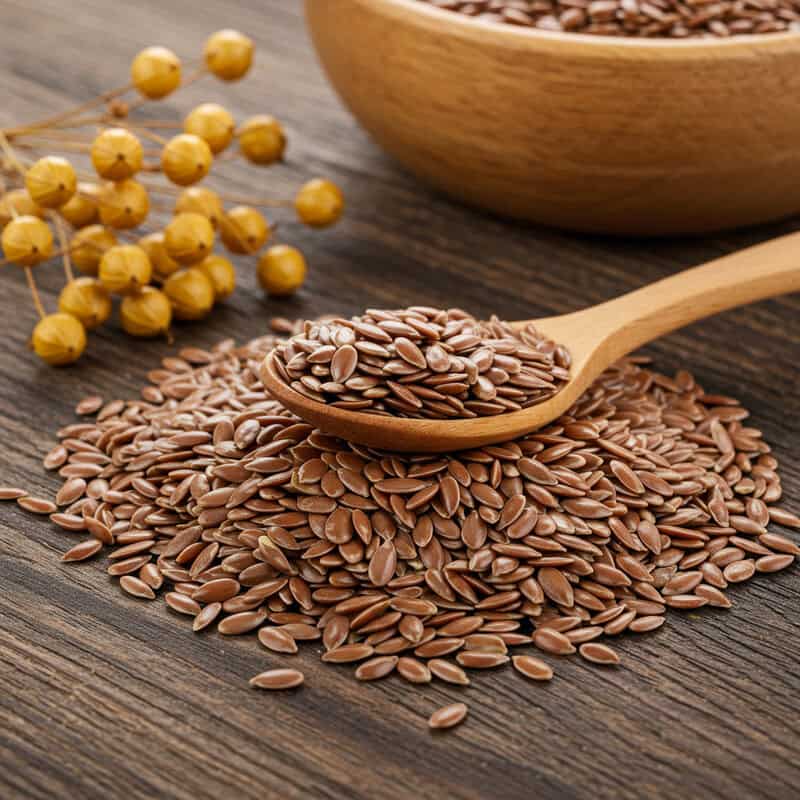
Flaxseed is a leading plant-based source of omega-3 fatty acids, particularly alpha-linolenic acid (ALA), which plays a key role in reducing inflammation throughout the body, including in the brain. Omega-3s are crucial for maintaining the structure of brain cell membranes, supporting neural communication, and reducing the risk of cognitive decline. A 2022 review in Biomolecules indicates that regular intake of flaxseed-derived ALA may help lower levels of brain inflammation and support overall cognitive health, especially for those who follow plant-based diets.
When compared to chia seeds, flaxseed offers a similar amount of omega-3s but with a slightly higher ALA content per serving. Both seeds are also rich in fiber and lignans—phytonutrients with antioxidant properties—but flaxseed is particularly valued for its unique combination of ALA and lignans that further support brain health and cardiovascular function.
To reap the benefits of flaxseed, use ground (milled) flaxseed, as whole seeds often pass through the digestive tract undigested. Sprinkle ground flaxseed over oatmeal, yogurt, or salads, mix into smoothies or baked goods, or stir into soups and sauces. Just one to two tablespoons daily can provide a meaningful boost for brain and overall wellness.
32. Peanuts
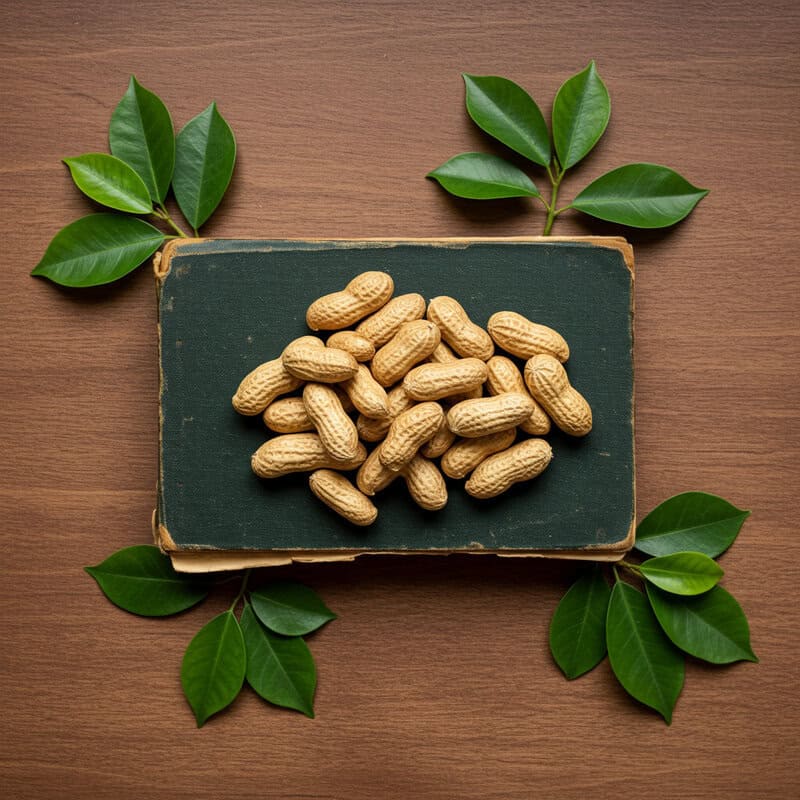
Peanuts are a rich source of niacin (vitamin B3) and vitamin E, both of which play significant roles in supporting brain health and lowering the risk of Alzheimer’s disease. Niacin aids in energy production within brain cells and supports DNA repair, while vitamin E acts as a powerful antioxidant, shielding neurons from oxidative damage and slowing cognitive decline. According to a 2022 review in the Journal of Alzheimer’s Disease, diets abundant in niacin and vitamin E are associated with a reduced risk of developing Alzheimer’s and other forms of dementia.
Compared to tree nuts like almonds, walnuts, and hazelnuts, peanuts provide comparable or even higher levels of niacin per serving and a robust dose of vitamin E. While tree nuts also deliver healthy fats and unique phytonutrients, peanuts offer these benefits at a more accessible cost, making them a practical addition to brain-protective diets.
However, peanut allergies are common, especially in children, and can trigger severe reactions. Those with peanut allergies should avoid all peanut products and opt for other vitamin E and niacin-rich foods, such as sunflower seeds or almonds. For those without allergies, enjoy peanuts as a snack, in nut butter, or sprinkled over dishes for a nutrient boost.
33. Mushrooms
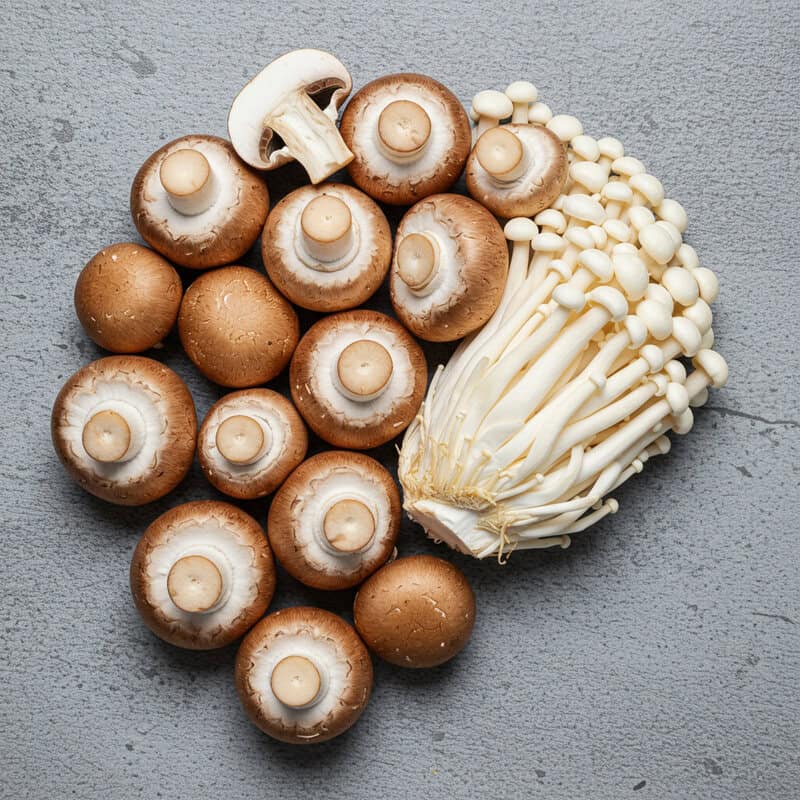
Mushrooms are unique among vegetables for their high levels of ergothioneine, a naturally occurring antioxidant that has shown promise in slowing cognitive decline and protecting neural tissue. Ergothioneine helps reduce oxidative stress and inflammation in the brain, processes that contribute to age-related cognitive disorders. A 2022 review in Nutrients found that regular mushroom consumption is linked to better cognitive performance and a lower risk of mild cognitive impairment, particularly in older adults.
Different mushroom varieties offer varying amounts of ergothioneine. Shiitake, oyster, and maitake mushrooms are among the richest sources, while commonly consumed white button and cremini mushrooms also contribute meaningful levels. All edible varieties provide additional nutrients such as B vitamins, selenium, and fiber, making them valuable additions to a brain-supportive diet.
To enjoy the cognitive benefits of mushrooms, add them to stir-fries, omelets, or pasta dishes. Roasting, sautéing, or grilling mushrooms brings out their savory, umami flavor. Try marinating and grilling portobello mushrooms as a meat substitute, or blend sautéed mushrooms into soups and sauces for depth of flavor and nutrition. Incorporating a mix of varieties maximizes both taste and health benefits.
34. Chicken

Chicken is a valuable source of vitamin B6 (pyridoxine), a nutrient essential for the synthesis of neurotransmitters such as serotonin, dopamine, and gamma-aminobutyric acid (GABA). These chemicals are fundamental for mood regulation, memory, and overall cognitive health. Adequate B6 intake supports optimal brain function by facilitating communication between nerve cells and helping to reduce the risk of neuropsychiatric disorders. A 2022 review in Nutrients highlights the role of vitamin B6 in cognitive performance, noting its importance in both childhood development and healthy aging.
When compared to turkey, chicken provides a similar amount of vitamin B6 per serving, with both poultry options offering lean protein and additional B vitamins. Turkey is also rich in tryptophan, another precursor to serotonin, but chicken remains a convenient and widely available source of B6 for daily meals.
For brain-healthy preparation, opt for grilling, baking, or poaching chicken rather than frying, which can add unnecessary fats and calories. Skinless chicken breast is especially lean and versatile—use it in salads, stir-fries, or wraps with plenty of vegetables. Marinate chicken with herbs and citrus for extra flavor without excess salt or sugar.
35. Sweet Potatoes
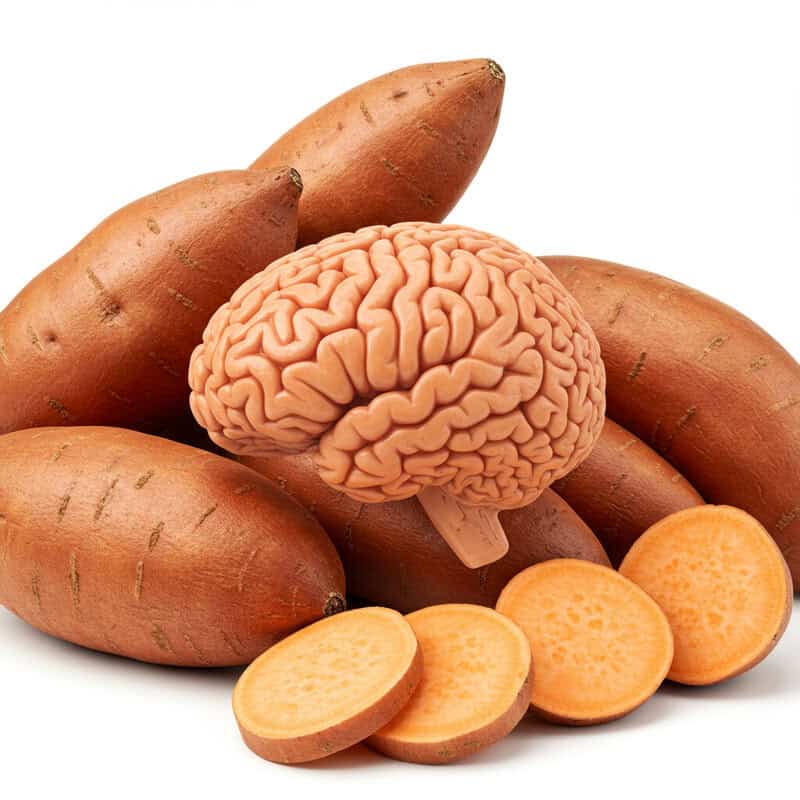
Sweet potatoes are an excellent source of beta-carotene, a powerful antioxidant that helps protect brain cells from oxidative stress and inflammation. Beta-carotene is converted by the body into vitamin A, which supports healthy neural tissue and aids in maintaining sharp cognitive function. A 2022 review in Antioxidants highlights the protective role of beta-carotene in reducing the risk of neurodegenerative diseases by neutralizing free radicals that can damage brain cells over time.
When compared to carrots, sweet potatoes offer a similar amount of beta-carotene per serving but provide more complex carbohydrates, fiber, and a slightly broader range of vitamins and minerals. Both vegetables are excellent for supporting brain health, but sweet potatoes stand out for their versatility and natural sweetness, which can make them more appealing in both savory and sweet dishes.
Sweet potatoes are delicious when baked whole or sliced into wedges and roasted with olive oil, herbs, and spices. Try making stuffed sweet potatoes with black beans and salsa, or blend cooked sweet potato into oatmeal, pancakes, or muffins for a nutrient-dense breakfast. Their vibrant color and creamy texture make sweet potatoes an easy and appealing way to boost brain nutrition.
36. Blackberries
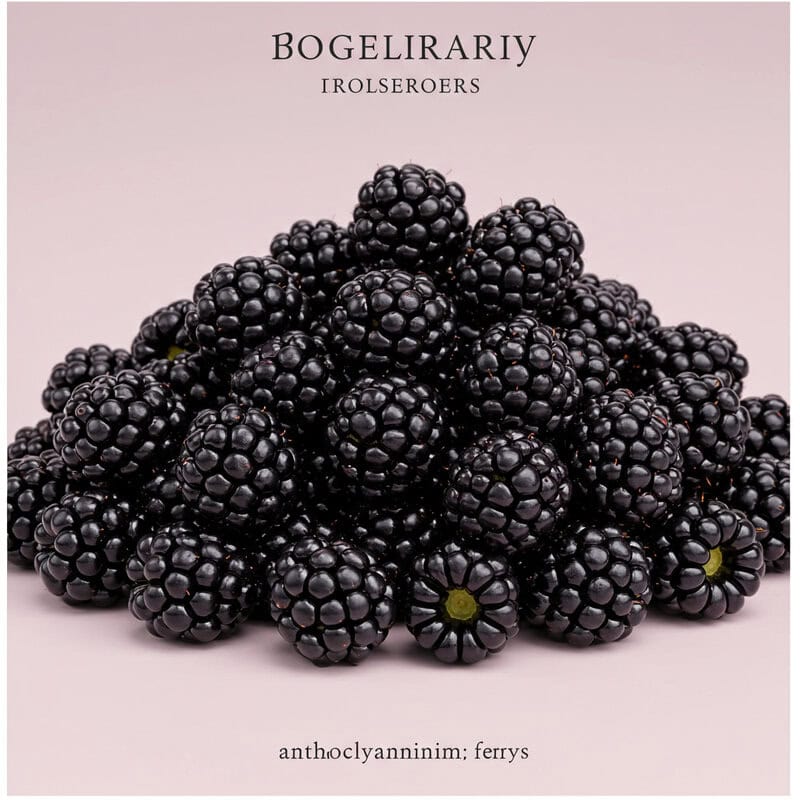
Blackberries are packed with anthocyanins, a class of flavonoids that give the berries their deep purple-black hue and offer powerful antioxidant benefits for the brain. Anthocyanins have been shown to enhance memory and cognitive processing by reducing oxidative stress, boosting neuronal signaling, and supporting neuroplasticity—the brain’s ability to adapt and form new connections. A 2022 review in Antioxidants highlights the link between regular consumption of anthocyanin-rich berries like blackberries and improved memory retention and learning capacity, especially in older adults.
In comparison to raspberries, blackberries offer higher concentrations of anthocyanins, though both berries provide vitamin C, fiber, and other antioxidants. While raspberries are excellent for overall health, blackberries may hold an edge for those specifically seeking memory-boosting benefits due to their unique phytochemical profile.
Enjoy blackberries as a simple snack, either fresh or frozen, or add them to yogurt, oatmeal, or smoothie bowls. For a healthy dessert, combine blackberries with a sprinkle of cinnamon and a dollop of Greek yogurt, or bake them into whole-grain crisps and muffins. Their sweet-tart flavor and vibrant color make blackberries a delicious way to support brain health every day.
37. Hemp Seeds
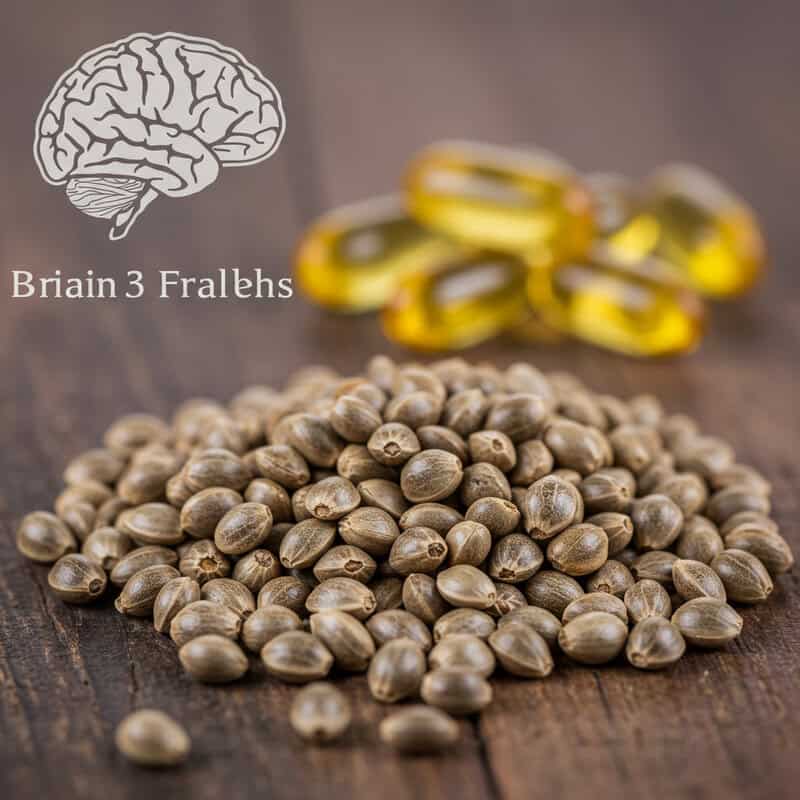
Hemp seeds are a nutrient-dense superfood, celebrated for their optimal balance of essential fatty acids—omega-3 and omega-6—as well as their impressive magnesium content. The fatty acids, especially alpha-linolenic acid (ALA), help maintain healthy brain cell membranes, reduce inflammation, and support cognition and mood. Magnesium, meanwhile, is crucial for nerve function, neurotransmitter synthesis, and calming the nervous system. According to a 2022 review in Nutrients, diets rich in both essential fatty acids and magnesium are linked to better memory, improved learning, and reduced risk of mood disorders.
Compared to chia and flax seeds, hemp seeds offer a slightly different mix: they have a more balanced ratio of omega-6 to omega-3, contain all essential amino acids, and provide more easily digestible protein. While chia and flax are higher in fiber and specific antioxidants, hemp seeds are particularly valued for their complete protein and superior magnesium content, making them ideal for supporting both brain and overall health.
To boost your brainpower, sprinkle hemp seeds onto salads, blend them into smoothies, or stir into yogurt and oatmeal. Their mild, nutty flavor complements both sweet and savory dishes, making it easy to add a nutritious boost to your daily meals.
38. Plums
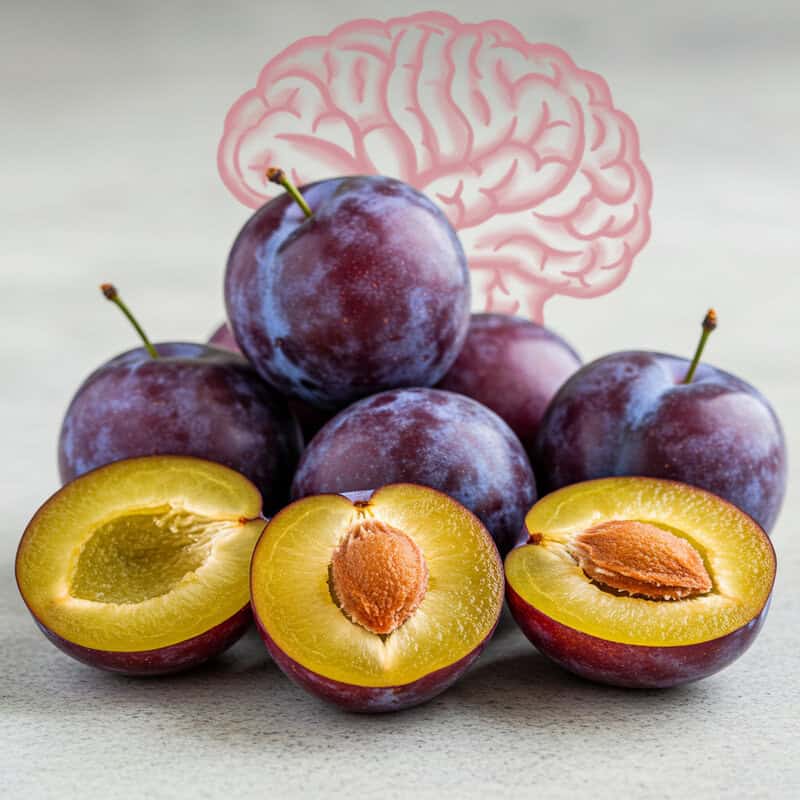
Plums are a flavorful fruit notable for their polyphenol antioxidants and vitamin K content, both of which play vital roles in protecting the brain from oxidative damage and supporting cognitive health. Polyphenols in plums help neutralize free radicals, reduce inflammation, and may slow the progression of age-related cognitive decline. Vitamin K is involved in the synthesis of sphingolipids, a type of fat crucial for maintaining the structure of brain cell membranes. According to a 2022 review in Foods, diets abundant in polyphenols and vitamin K are associated with better memory and reduced risk of neurodegenerative diseases.
When compared to prunes (dried plums), fresh plums have a higher water content and slightly fewer calories per serving. Prunes, however, are more concentrated in antioxidants and fiber due to the drying process, making both forms beneficial for brain and digestive health. Fresh plums provide a refreshing snack, while prunes can be used for their sweet, chewy texture and added nutrient density.
For easy snacking, enjoy fresh plums whole or sliced, paired with nuts or cheese. Plums can also be baked into crisps, tarts, or muffins, adding natural sweetness and vibrant color. Add chopped prunes to oatmeal, trail mix, or baked goods for a boost in fiber and brain-friendly nutrients.
39. Carrots
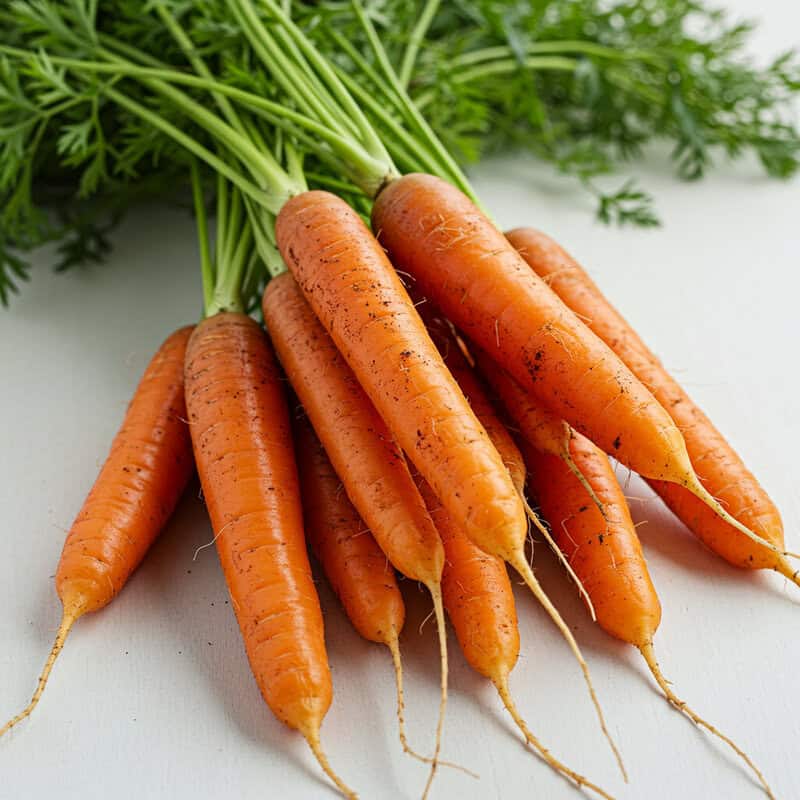
Carrots are widely recognized for their high beta-carotene content, which the body converts to vitamin A, a nutrient essential for maintaining brain cell integrity and supporting cognitive function. In addition to beta-carotene, carrots contain luteolin, a flavonoid that exhibits potent anti-inflammatory properties. Luteolin may help suppress the production of inflammatory cytokines in the brain, thereby reducing neural inflammation and lowering the risk of age-related cognitive decline. A 2020 review in Nutrients highlights the neuroprotective effects of beta-carotene and luteolin, linking higher intake to improved memory and a reduced risk of neurodegenerative diseases.
When compared to sweet potatoes, carrots provide slightly less beta-carotene per serving but offer a unique source of luteolin, which is less abundant in sweet potatoes. Both vegetables support brain health through their antioxidant and anti-inflammatory actions, but carrots are lower in calories and make a versatile addition to both raw and cooked dishes.
For snacks, enjoy carrot sticks with hummus or yogurt dip. Add shredded carrots to salads, wraps, or stir-fries for crunch and color. Roasted carrots with olive oil and herbs or glazed with a touch of honey make a flavorful side dish that supports both brain and overall health.
40. Cashews
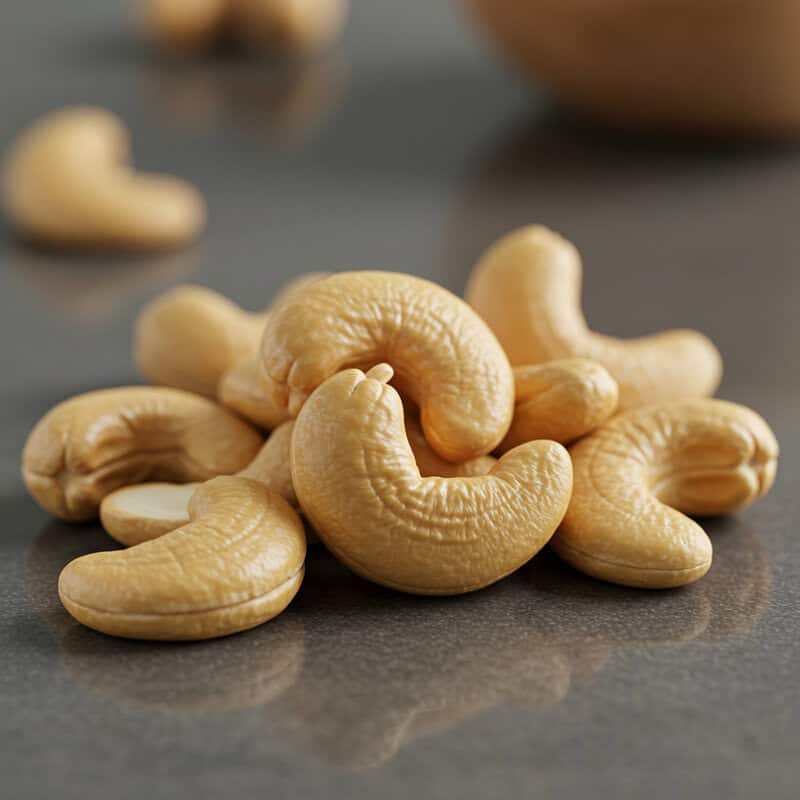
Cashews are a nutrient-rich nut, providing substantial amounts of zinc and magnesium—two minerals essential for maintaining mood stability and cognitive function. Zinc supports neurogenesis and neurotransmitter activity, playing a direct role in emotional balance and memory. Magnesium is vital for synaptic plasticity, nerve transmission, and helps regulate the stress response, all of which are crucial for learning, focus, and resilience against mental fatigue. A 2021 review in Nutrients underscores the positive effects of adequate zinc and magnesium intake on depression risk, anxiety levels, and cognitive performance in both children and adults.
When compared to almonds, cashews offer more zinc but slightly less magnesium. While almonds are rich in vitamin E and fiber, cashews’ unique combination of minerals provides distinct benefits for brain health, particularly with regard to mood regulation and cognitive sharpness. Both nuts are excellent additions to a varied, brain-supportive diet.
For healthy snacking, enjoy a small handful (about 1 ounce or 28 grams) of unsalted, raw, or dry-roasted cashews. Add them to trail mix, sprinkle over salads, or blend into creamy cashew butter for a satisfying spread. Moderation is key, as cashews are calorie-dense but deliver powerful cognitive and mood-supporting nutrients.
41. Asparagus
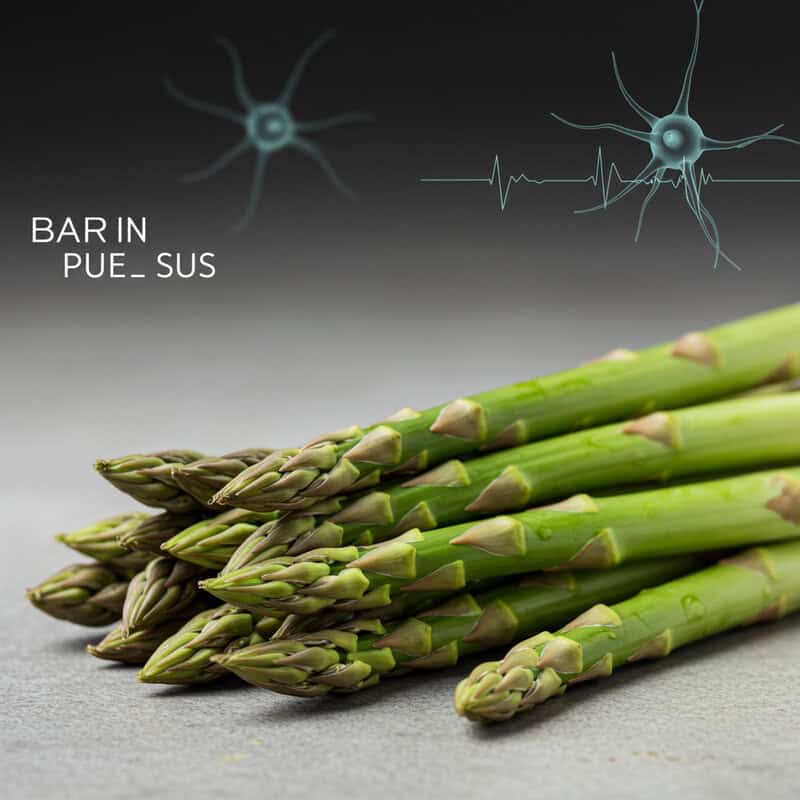
Asparagus is a spring vegetable rich in folate and vitamin K, two nutrients with significant roles in maintaining cognitive function and brain cell health. Folate is crucial for the synthesis of neurotransmitters, supporting memory and mood regulation, while vitamin K is involved in the creation of sphingolipids, essential fats for brain cell structure and signaling. According to a 2022 review in Nutrients, diets high in folate and vitamin K are linked to better memory retention and a reduced risk of neurodegenerative conditions, especially in aging populations.
When compared to green beans, asparagus provides more folate and vitamin K per serving, making it a more potent choice for brain health support. Green beans do provide fiber and vitamin C, but asparagus’s concentration of brain-essential nutrients gives it a particular advantage for cognitive protection and mental sharpness.
To prepare asparagus, trim the woody ends and steam, roast, or grill until tender-crisp. Drizzle with olive oil and a squeeze of lemon, or toss with garlic and parmesan for extra flavor. Asparagus can also be chopped and added to omelets, salads, or pasta dishes, offering a vibrant, brain-boosting addition to any meal.
42. Pears
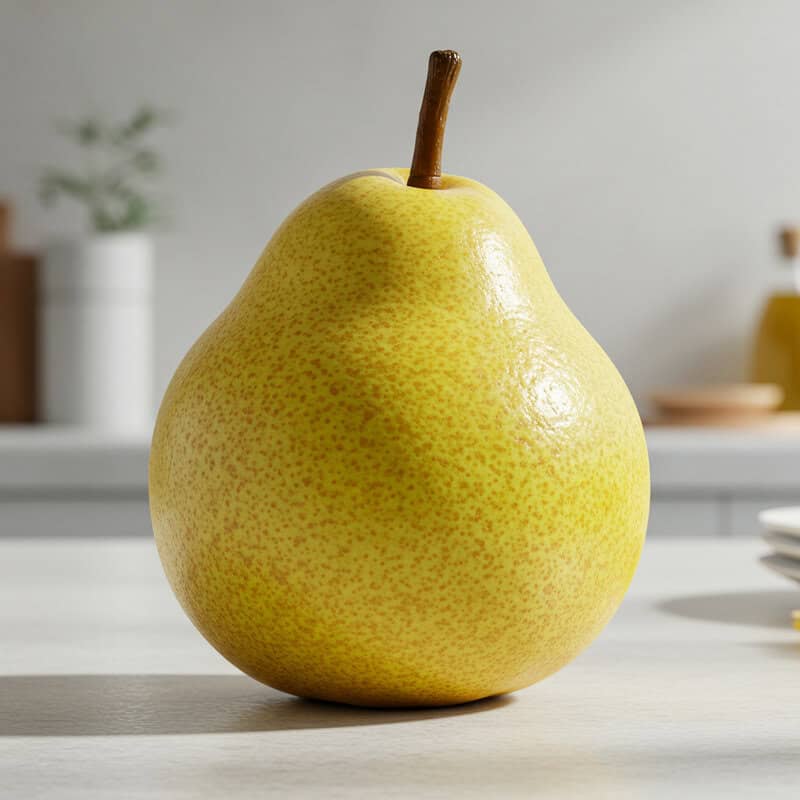
Pears are a gentle, hydrating fruit notable for their high fiber content and a diverse range of antioxidants, both of which play key roles in supporting gut-brain health. Dietary fiber is essential for nurturing a healthy gut microbiome, which in turn communicates with the brain through the gut-brain axis, influencing mood, cognition, and immune function. Pears also provide flavonoids and vitamin C, which help reduce inflammation and protect brain cells from oxidative damage. According to a 2022 review in Nutrients, fiber-rich diets are linked to enhanced mental well-being and a lower risk of neurodegenerative conditions.
When compared to apples, pears have a slightly higher fiber content per serving and a milder antioxidant profile. Apples are richer in quercetin, but pears offer a gentler sweetness and are often easier to digest, making them ideal for individuals with sensitive stomachs or those seeking variety in their fruit intake. Both fruits contribute to a healthy gut and brain, but pears stand out for their unique combination of soluble and insoluble fiber.
Pears are delicious sliced into salads with walnuts and leafy greens or served as a simple snack, either fresh or paired with cheese. Roasted or poached pears also make a naturally sweet dessert that supports both digestive and cognitive well-being.
43. Green Peas
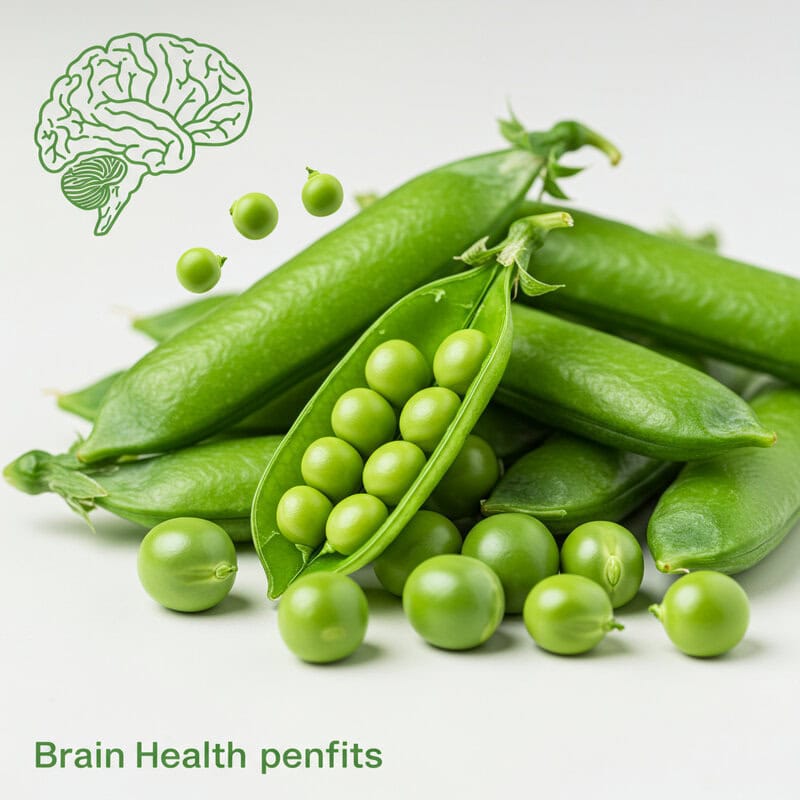
Green peas are a humble yet nutrient-rich vegetable, providing vitamin K and manganese—two key nutrients that play an important role in memory and overall brain health. Vitamin K supports the formation of sphingolipids, specialized fats vital for healthy brain cell membranes and neural signaling, while manganese is essential for antioxidant enzyme function and energy metabolism in the brain. According to a 2022 review in Nutrients, adequate intake of vitamin K and manganese is linked to improved memory retention and reduced risk of neurodegenerative conditions.
When compared to edamame, green peas offer less protein but provide a similar amount of vitamin K and a notable amount of manganese. While edamame excels in plant-based protein and folate, green peas stand out for their combination of vitamin K, manganese, and dietary fiber, making them an excellent addition to a balanced, brain-supportive diet.
Green peas are easy to add to a variety of meals. Stir them into risottos, soups, and stews, or toss into pasta dishes for a pop of color and nutrition. Pureed green peas make a vibrant spread for toast or crackers, and they can be blended into dips or added to grain bowls for a brain-boosting boost.
44. Artichokes
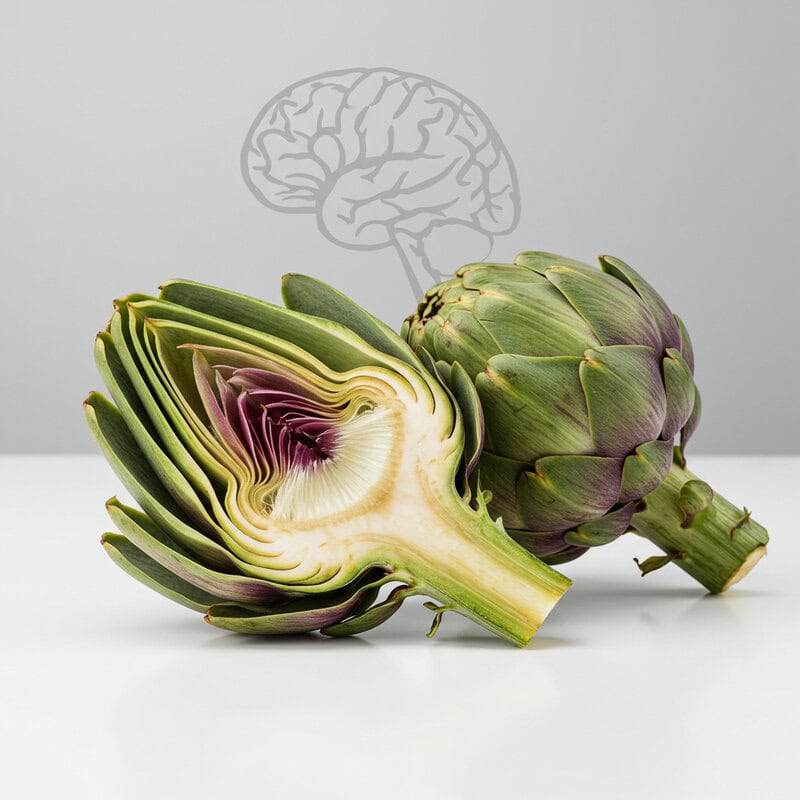
Artichokes are a unique vegetable celebrated for their high content of prebiotics and antioxidants, both of which contribute to cognitive health. Prebiotics, such as inulin, feed beneficial gut bacteria and help maintain a healthy gut-brain axis, which is increasingly recognized as a key factor in mood regulation, memory, and mental clarity. Artichokes also provide flavonoids and vitamin C, antioxidants that protect neurons from oxidative damage and inflammation. According to a 2022 review in Nutrients, regular consumption of prebiotic-rich vegetables like artichokes is associated with enhanced cognitive performance and reduced risk of neurodegenerative conditions.
When compared to Jerusalem artichokes (sunchokes), globe artichokes contain slightly less inulin but provide a broader array of antioxidants and fiber. Jerusalem artichokes are particularly high in inulin, making them excellent for gut health, while globe artichokes offer greater versatility in culinary uses and a richer antioxidant profile.
To enjoy artichokes, steam whole globes and dip the leaves in olive oil or lemon-herb vinaigrette. Artichoke hearts can be added to salads, pasta, or grain bowls, and are delicious roasted or grilled. For a simple appetizer, try marinated artichoke hearts with olives and fresh herbs to support both digestion and brain function.
45. Grapefruit
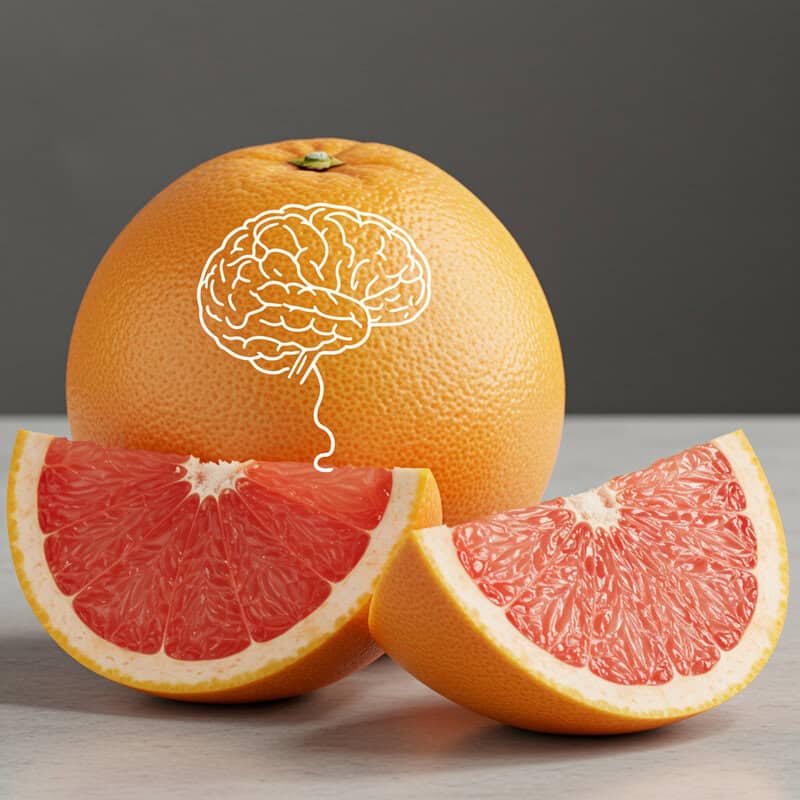
Grapefruit is a tangy citrus fruit packed with vitamin C and flavonoids, both of which play important roles in protecting brain cells from oxidative stress and supporting immune function. Vitamin C is a powerful antioxidant that helps neutralize free radicals, while flavonoids such as naringenin and hesperidin may improve cerebral blood flow and reduce inflammation, contributing to better memory and cognitive performance. A 2022 review in Nutrients affirms the neuroprotective benefits of vitamin C and citrus flavonoids, linking higher intake to reduced risk of age-related cognitive decline.
When compared to oranges, grapefruit contains a similar amount of vitamin C but offers a distinct profile of flavonoids and a slightly lower sugar content. Both fruits are excellent for brain health, yet grapefruit’s unique blend of antioxidants and tart flavor can provide variety in a brain-supportive diet.
It’s important to note that grapefruit can interact with certain medications, including statins, some blood pressure drugs, and immunosuppressants, potentially altering their effectiveness or increasing side effects. Always consult with your healthcare provider or pharmacist before adding grapefruit to your routine if you take prescription medications. Enjoy grapefruit segments in salads, as a refreshing snack, or juiced for a nutrient-rich beverage.
46. Pumpkin
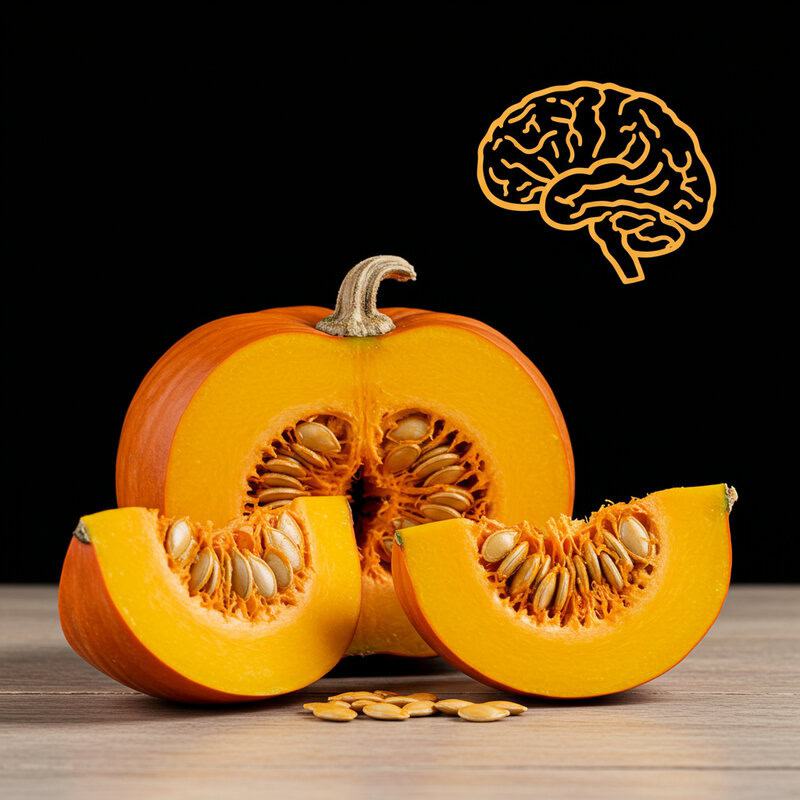
Pumpkin is a nutrient-dense vegetable prized for its high beta-carotene and fiber content, both of which contribute to robust brain health. Beta-carotene, a powerful antioxidant, is converted into vitamin A in the body, protecting brain cells from oxidative stress and supporting neural development and function. Dietary fiber, meanwhile, fosters a healthy gut microbiome, which is increasingly recognized for its role in cognitive well-being via the gut-brain axis. A 2022 review in Antioxidants highlights the neuroprotective effects of carotenoids like beta-carotene in lowering the risk of neurodegenerative diseases and age-related cognitive decline.
When compared to butternut squash, pumpkin offers a similar nutritional profile, with both vegetables being rich in beta-carotene and fiber. Pumpkin typically has fewer calories per serving and a milder flavor, while butternut squash provides a slightly sweeter taste and higher potassium content. Both are excellent additions to a brain-healthy diet.
Incorporate pumpkin into your routine by adding it to soups, stews, or chili for creaminess and color. Try roasting pumpkin cubes with spices, blending cooked pumpkin into smoothies, or baking it into muffins and breads. Pumpkin puree also makes a nutritious base for sauces and dips, supporting both brain and digestive health.
47. Chickpeas
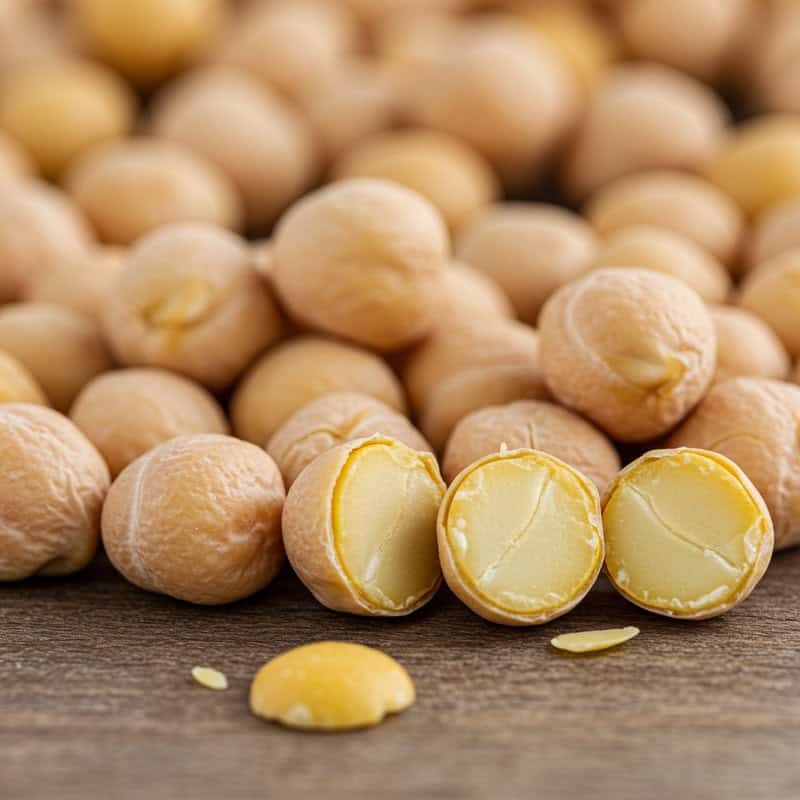
Chickpeas, also known as garbanzo beans, are an excellent source of iron and choline—two nutrients crucial for maintaining attention, focus, and overall cognitive function. Iron is essential for oxygen transport in the blood and energy production in brain cells, directly impacting alertness and mental stamina. Choline, meanwhile, supports the synthesis of acetylcholine, a neurotransmitter involved in memory and concentration. According to a 2022 review in Nutrients, adequate intake of iron and choline is associated with improved attention span, learning ability, and reduced risk of cognitive fatigue.
Compared to lentils, chickpeas provide more choline per serving and a similar amount of iron, although lentils are higher in folate and protein. Both legumes are rich in fiber and support stable blood sugar levels, but chickpeas hold a slight edge for those seeking to boost choline intake for better concentration and cognitive performance.
Chickpeas are highly versatile and can be enjoyed as roasted snacks, blended into hummus, or tossed into salads and grain bowls. Add them to curries, soups, or stews for a hearty texture and nutritional boost. Their mild, nutty flavor and satisfying crunch make chickpeas an easy addition to any brain-supportive meal plan.
48. Hazelnuts
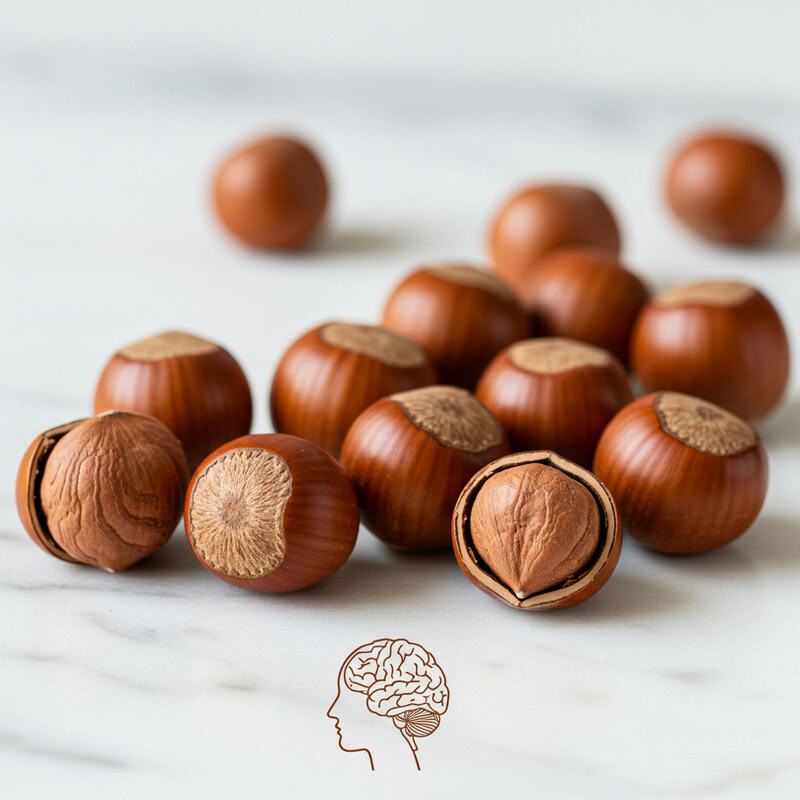
Hazelnuts are a nutrient-dense nut, especially valued for their high content of vitamin E and folate, both of which are closely linked to cognitive aging and long-term brain health. Vitamin E acts as a potent antioxidant, protecting brain cells from oxidative stress and reducing the risk of age-related cognitive decline. Folate, a B-vitamin, is crucial for neurotransmitter synthesis and cognitive function, with deficiency linked to memory loss and impaired mental performance. A 2022 review in Antioxidants highlights that increased intake of vitamin E and folate can slow cognitive aging and lower the risk of neurodegenerative disorders.
When compared to walnuts, hazelnuts offer more vitamin E per serving but slightly less omega-3 fatty acids. Walnuts are famous for their alpha-linolenic acid (ALA) content, which supports neuron health, while hazelnuts excel as an antioxidant-rich, folate-boosting snack. Both nuts offer unique benefits and can complement each other in a varied, brain-healthy diet.
For easy snacking, enjoy a small handful (about 1 ounce or 28 grams) of hazelnuts on their own, or mix with dried fruit for a trail mix. Hazelnuts can also be added to oatmeal, yogurt, or salads, and their flavor pairs beautifully with dark chocolate for a satisfying, brain-friendly treat.
49. Watermelon
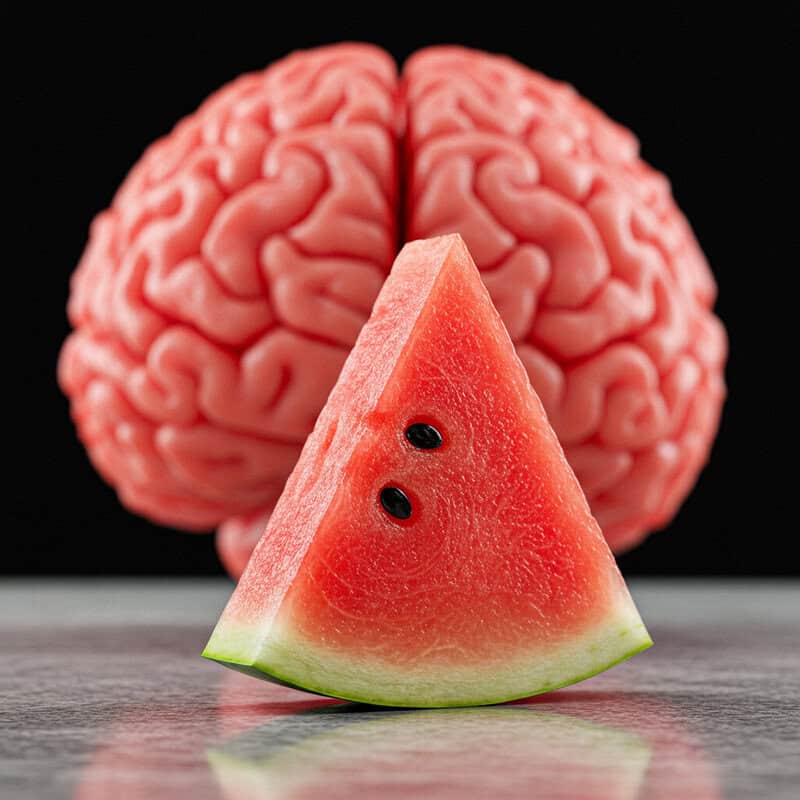
Watermelon is a hydrating fruit that offers significant brain health benefits thanks to its high water content and the antioxidant lycopene. Lycopene helps neutralize free radicals, reducing neural inflammation and protecting brain cells from oxidative stress, which are both crucial for maintaining cognitive function as we age. In addition, watermelon’s high water content supports optimal hydration, which is essential for concentration, memory, and mental clarity. According to a 2022 review in Antioxidants, lycopene-rich foods like watermelon are associated with a lower risk of cognitive decline and improved brain performance, especially in older adults.
Compared to cantaloupe, watermelon contains more lycopene but slightly less vitamin C and potassium. Both melons are excellent choices for hydration and brain health, but watermelon’s unique antioxidant profile and water density make it especially valuable during hot weather or for those needing extra hydration.
Enjoy watermelon as a refreshing snack by slicing it into wedges or cubes, or add to fruit salads for a burst of color and juiciness. Watermelon can also be blended into smoothies or pureed for a cooling drink. Keeping chilled watermelon on hand provides a tasty, hydrating way to support brain function all summer long.
50. Garlic
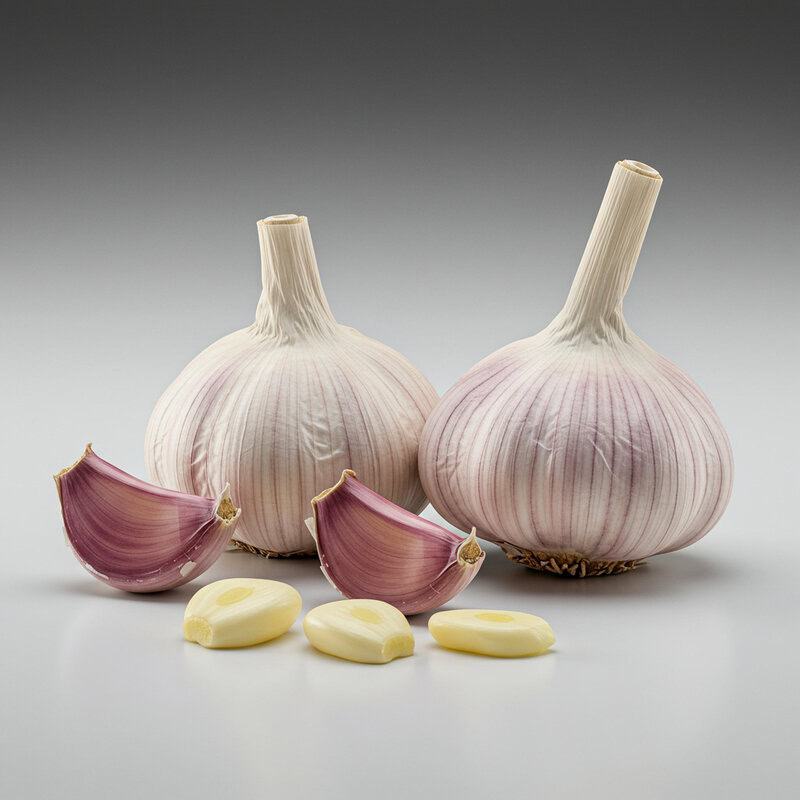
Garlic is celebrated for its potent neuroprotective and anti-inflammatory properties, largely attributed to the compound allicin. Allicin is formed when garlic is crushed or chopped and has been shown to combat oxidative stress, reduce inflammation in neural tissue, and support cerebral blood flow. These actions help protect brain cells from damage and may slow the progression of cognitive decline. A 2021 review in Antioxidants discusses how regular garlic consumption is linked to improved memory, learning, and a decreased risk of neurodegenerative diseases.
When compared to onions, garlic contains higher concentrations of allicin and related sulfur compounds, making it more effective in terms of neuroprotection. Onions, while also beneficial for brain health due to their quercetin and flavonoid content, provide a different spectrum of antioxidants and anti-inflammatory agents. Both vegetables are valuable, but garlic stands out for its unique neuroactive phytochemicals.
To maximize allicin’s benefits, crush or chop garlic and let it sit for 5-10 minutes before cooking. Add fresh garlic to sautés, soups, or salad dressings, or roast whole bulbs for a sweet, mellow flavor. Garlic can also be blended into dips, spreads, and pasta sauces for both taste and brain health support.
Conclusion
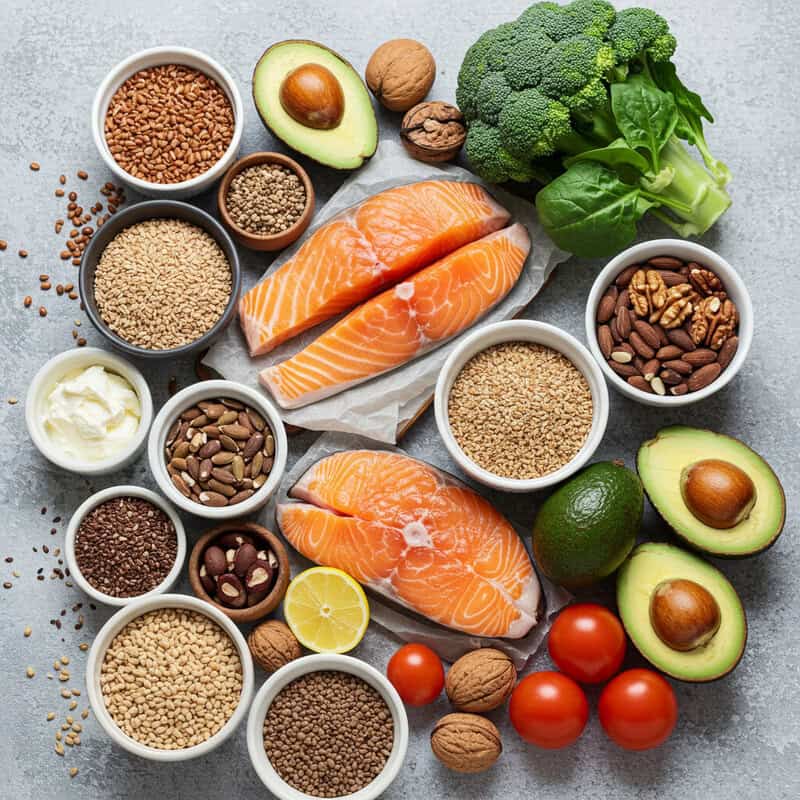
Protecting brain health has never been more urgent, as cognitive decline often develops silently and can be difficult to detect early. Incorporating a variety of nutrient-rich foods offers a simple, proactive way to support memory, focus, and long-term brain resilience. Even small dietary changes—prioritizing whole grains, colorful produce, and healthy fats—can yield significant benefits over time. For those concerned about cognitive function or at increased risk, regular screening and consultation with healthcare professionals are essential. Early detection allows for timely intervention and personalized strategies. For more information on cognitive health and assessments, visit the Alzheimer’s Association or speak to your healthcare provider.
Disclaimer
The information provided in this article is for general informational purposes only. While we strive to keep the information up-to-date and correct, we make no representations or warranties of any kind, express or implied, about the completeness, accuracy, reliability, suitability, or availability with respect to the article or the information, products, services, or related graphics contained in the article for any purpose. Any reliance you place on such information is therefore strictly at your own risk.
In no event will we be liable for any loss or damage including without limitation, indirect or consequential loss or damage, or any loss or damage whatsoever arising from loss of data or profits arising out of, or in connection with, the use of this article.
Through this article you are able to link to other websites which are not under our control. We have no control over the nature, content, and availability of those sites. The inclusion of any links does not necessarily imply a recommendation or endorse the views expressed within them.
Every effort is made to keep the article up and running smoothly. However, we take no responsibility for, and will not be liable for, the article being temporarily unavailable due to technical issues beyond our control.





